Select a day
- Tuesday
- Wednesday
- Thursday
-
9:45am
Jens Andersson MachineGamesPete Ward MachineGamesKate Edwards Geogrify / SetJetters9:45am - 10:45amRoom 1KEYNOTE: The Spirit of Adventure – Bringing Indiana Jones Back to Gaming
Tuesday 8th July9:45am - 10:45amRoom 1A fireside chat with MachineGames’ Design Director Jens Andersson and Audio Director Pete Ward. This session promises an engaging discussion about the challenges and triumphs of adapting the legendary Indiana Jones IP for a modern gaming audience.
Hosted by: Kate Edwards, Geogrify/SetJetters
Tom Cole University of GreenwichLaurence Oldham Frontier DevelopmentsKish Hirani Kiss Publishing & BiGDeclan Cassidy Into GamesHope Caton Kingston UniversityIan Goodall Aardvark SwiftMarcia Deakin NextGen Skills Academy9:45am - 10:45amRoom 5Welcome: State of the Nation, Education and Industry Opportunities
Tuesday 8th July9:45am - 10:45amRoom 5Brief welcome and overview of the Games:Edu track from Dr Tom Cole and Laurence Oldham.
Followed by an expert panel, focusing on the challenges and opportunities for education and industry. The panel will bring their diverse perspectives and many years of practical experience to provide a grounded view of where we are today and where we could be. This will be followed by a Q & A session and provide a solid foundation for the workshops and discussions that will be held throughout the day.
Session Takeaway
- A wide ranging view of the challenges and opportunities facing industry and education as seen and informed by the panel of experts
- A chance to ask the experts about their findings and experience
11:00am
Xu He ustwo games11:00am - 11:45amRoom 1Designing Together: The Power of Collaborative Game Design on Monument Valley 3
Tuesday 8th July11:00am - 11:45amRoom 1The third installment in the beloved, award-winning series, Monument Valley 3 was released in December 2024 to widespread acclaim from both the media and players. The Guardian praised its innovation, noting that 'with its more natural forms and shapes, it breaks some of the rules of Monument Valley, mixing and matching styles and ideas more freely’.
I joined the Monument Valley 3 team as a senior designer during its early pre-production stage. In this talk, I will share how fostering creativity across all disciplines (e.g., programmers, artists, producers, and QAs) contributed to Monument Valley 3’s design and what role designers play when ideas can come from everywhere.
By encouraging input from the entire team, we gained fresh perspectives that enriched the game and led to more diverse and innovative design. But this doesn’t mean designers are less important. They play a crucial role in shaping ideas into cohesive and engaging experiences.
Session Takeaway
- Create a pressure-free playground for the team to play - using a loose framework and handy tools
- While everyone contributes creatively, you’ll learn how designers play a crucial role in shaping ideas into cohesive and engaging experiences
- If you want your artists to fix the remaining issues in your design, you need to help them fully understand your design first
Charmie Kim SupercellFelicity Gracie-Herst Trailmix GamesNeil Long mobilegamer.biz11:00am - 11:45amRoom 2Leading New Frontiers in Mobile
Tuesday 8th July11:00am - 11:45amRoom 2Game Lead Charmie Kim from Supercell and General Manager Felicity Gracie-Herst from Trailmix join mobilegamer.biz founder Neil Long to discuss the challenges of designing and operating innovative games amid uncertainty, adapting to shifting consumer tastes, and more...
Katherine Mould Keywords Studios11:00am - 11:45amRoom 3Superpowers in Diversity: Managing Mental Health and Neurodiverse Teams for Success
Tuesday 8th July11:00am - 11:45amRoom 3Neurodiverse individuals bring exceptional strength, creativity, hyperfocus, attention to detail, and resilience—that can transform teams and foster innovation. However, these unique talents often go unrecognized or underutilized due to a lack of understanding about neurodiversity and its impact on team dynamics.
In this session, we’ll explore the unique strengths of neurodiverse individuals contribute to the gaming industry, supported by actionable insights. From creativity that drives innovative game design to hyperfocus that ensures precise execution, attendees will gain a deep appreciation for the value of neurodiverse minds. We’ll also address practical strategies for fostering inclusion and creating supportive team environments. Topics include tailoring workflows, using technology to improve communication and accessibility, and providing meaningful accommodations that empower neurodiverse team members to thrive. We’ll highlight how to overcome biases, build psychological safety, and foster a culture of trust and collaboration.
Attendees will leave with actionable takeaways, including steps to start open conversations about neurodiversity, strategies for developing inclusive hiring practices, and tools to support team members’ unique needs. By embracing neurodiversity, you’ll not only drive innovation and creativity but also build stronger, more inclusive teams that set your studio apart in a competitive industry.
This session is for anyone this session is for everyone, from the curious to the already passionate about creating inclusive, and high-performing teams—no prior knowledge of neurodiversity required. Let’s unlock the extraordinary potential of neurodiverse talent together.Session Takeaway
- Neurodiversity as a Strength:
Neurodiverse individuals bring unique problem-solving, creativity, and perspectives that drive innovation
Recognizing these "superpowers" enhances team performance
- Inclusive Environments Lead to Success:
Flexible accommodations and open communication foster well-being and productivity
Mental health awareness benefits the entire team
- Personalized Approaches Build Stronger Teams:
Adapting to individual needs creates a culture of trust and collaboration
Embracing diversity ensures long-term team success.
John Campbell Triangular Pixels11:00am - 11:45amRoom 4From Constraints to Creativity: The Art and Science of Procedural Level Design
Tuesday 8th July11:00am - 11:45amRoom 4Procedural level generation is more than just a clever algorithm—it’s a tool for unlocking creativity, streamlining workflows, and delivering unique player experiences. In this session, we’ll take you behind the scenes of Unseen Diplomacy 2 to showcase the innovative design and development of its procedural level generation system.
The key design constraints that made procedural generation the right choice will be shared and we’ll explore how we structured a system that puts control into the hands of designers and artists. You’ll see how this approach not only fosters creativity but also makes procedural systems accessible and adaptable for teams of any size or composition.
We’ll break down the graph-based workflows that formed the foundation of our system, offering insights into making complex tools intuitive for designers while retaining technical control. We’ll discuss practical lessons learned, from prototyping to production, and how these workflows can be applied across different game genres.
The session will also cover integrating QA into procedural pipelines, focusing on how to create meaningful, actionable feedback loops and tackle the unique challenges of debugging dynamic content.
Finally, we’ll share a case study of the custom tools we developed, revealing what worked, what didn’t, and how these lessons can help you wrangle the complexity of procedural systems in your own projects.
Whether you’re a programmer, designer, or tools specialist, this talk will equip you with the strategies and insights to make procedural generation a core part of your creative toolkit.
Session Takeaway
- A data oriented method for procedural level designs that encourages collaboration between programmers, designers and artists - allowing creatives to direct the level and be creative
- Lessons learnt taking a prototype to production quality and the tooling built along the way
- How to wrangle the complexity of a procedural system, the extra challenges it brings and how to adapt it to your team size
James Butcher Epic Games11:00am - 11:45amRoom 5An Unreal Future: Foundations for Student Success
Tuesday 8th July11:00am - 11:45amRoom 5This session will address the ongoing and increasingly complex challenge of preparing students for successful careers in the games industry. Preparing students for a future in the games industry is an ever evolving challenge. This session will explore the challenge of aligning curriculum to industry needs, the use of student collaborative projects and observations of how the landscape of UK games education is changing.
Drawing on over 15 years of experience with Unreal Engine—as a hobbyist, educator, and professional. James will offer a dual perspective informed by both his time teaching in higher education and his current role at Epic Games. The talk will explore effective strategies for integrating collaborative student projects into curricula, highlight recent developments within UK games higher education, and propose actionable steps that institutions can take to support student success.
Session Takeaway
- Practical models for student collaboration in project-based learning.
- Observations from the evolving UK games education sector.
- Strategies for enhancing student preparedness for industry roles and alternate paths for success.
Jazeena McCallum Freelancer11:00am - 11:45amRoom 6Roundtables FREEDevelop: FTUE (First Time User Experience) Tuesday
Tuesday 8th July11:00am - 11:45amRoom 6A relaxed and informal roundtable designed to help you get the most out of your time at the conference. A diverse panel of friendly and experienced devs from across the whole industry spectrum want to help anyone who feels shy, awkward, a little out of place, on the outside, or just unable to really squeeze all the goodness out of this amazing show. You'll feel positive, empowered and fully equipped to have an absolutely smashing time, with tips on how to be productive, tools to network, and commitments from volunteers to be your safety net should things get a little too much! Finally, should you feel like it would help, we'll match people up with Show Mentors to ensure however long you're in Brighton, you go back to your studio feeling invigorated and inspired!
Session Takeaway
- Shared experiences that will give you some ideas on best practise plus do's and dont's for networking at every event.
- Recommendations for talks to attend and delegates to meet, plus practical help to do so!
- Knowledge of safe and quiet spaces to help manage your experience at the show
- Introductions to helpers who you can approach throughout your visit if you need a friendly face!
12:00pm
Paul Kilduff-Taylor Mode 712:00pm - 12:45pmRoom 143 Essential Game Dev Tips That Are Immutably Correct and Must Never be Disputed by Anyone Ever!
Tuesday 8th July12:00pm - 12:45pmRoom 1Game development advice is often a ludicrous minefield of abject nonsense, posturing and unserious pontification - will this talk be any different? During this session, Paul will break down a selection of common themes, problems and points of contention that can arise during any game development project and attempt to establish whether universal gamedev wisdom truly exists.
The talk will take on a very wide scope, from game design to technical issues and on to legal and commercial matters. Its objectives are to provoke discussion within teams, provide a reminder of some basics that are readily forgotten in the heat of production and encourage developers to challenge convention.
Session Takeaway
- How to design and pitch commercially competitive games without compromising creativity
- Key company building fundamentals for indie developers
- A delightful selection of stimulating tips to argue about with your team
Mariusz Gasiewski Google12:00pm - 12:45pmRoom 2Mobile Gaming in 2025 - What Can We Expect Based on Data?
Tuesday 8th July12:00pm - 12:45pmRoom 2What are the current data-backed trends in mobile gaming? Specifically, which genres are experiencing growth or decline? What is the projected growth for the coming months? Is there room for new game development and studios, and how does mobile gaming funding compare to other gaming areas?
Session Takeaway
- Deep insights about mobile gaming (comparing to gaming in general)
Imogen Mellor YRS TRULY12:00pm - 12:45pmRoom 3Social Media and Vertical Video: Catching Attention in Seconds
Tuesday 8th July12:00pm - 12:45pmRoom 3This session aims to catch the attention of the masses. Social media is a constantly evolving beast, and more than ever it’s important to know how to stop someone in their tracks to pay attention to your project while they’re confronted with a million other pieces of media demanding their eyes.
Social media is an even playing field at its core but that means anyone can play. If you want to compete you’re not only on that playing field with the best of the best, but a sea of other content. We’ll explore trends, why they work, what to learn from the first second of successful vertical videos, and what you can learn from your doomscrolling every day.
This session will also dissect the parts of TikTok you may, as a user, be unfamiliar with. The importance of sounds, hashtags, post timing, thumbnails, captions, and more. Success on social media isn’t totally random or based on luck - there are foundations laid beneath many viral videos that as a user you wouldn’t recognise, but as a creator, you’ll need to know. Let’s set your accounts up for success.
Session Takeaway
- How to analysis the ways in which TikTok content is appealing to the viewer, and thinking critically about how that can apply to their use of the platform
- How to capitalise on a game’s aesthetic choice/history/subject matter to lead your social strategy
- Thinking critically about how to make your content the best it can be within the ‘rules’ of vertical video success on TikTok and beyond
Luke Hebblethwaite BAFTACassia Curran Raw Fury / Curran GamesNick Poole UkieGeorge Jijiashvili Omdia12:00pm - 12:45pmRoom 4Why Cultural Recognition is Crucial to the Future of the Games Industry
Tuesday 8th July12:00pm - 12:45pmRoom 4This session will explore why the ongoing effort to ensure games are recognised and celebrated as a true art from, alongside the best of the other screen and creative industries, is not just a nice-to-have, but is critical in the future success of the industry.
It will look at how creating a better understanding and appreciation of our sector and creative work will foster efforts to enact favourable policy, to get a seat at some of the most influential tables and to unlock greater public incentives. By widening the acceptance of our industry, we will increase and unlock markets of untapped potential, diversify player spend and create opportunities for new types of games to emerge.
Breaking down lingering misconceptions and stereotypes will vastly improve media coverage and cultural analysis of our art form, levelling the playing field of understanding and ensuring everyone from parents to politicians gives games their rightful fair consideration. And by celebrating and recognising best talents and diverse people of our industry, we can show that the games industry really is for everyone, ensuring the brightest stars of the future are inspired to join our industry, whatever their background.
Session Takeaway
- Understand the political, economic and market impacts of the wider cultural recognition of games
- Discuss the barriers and opportunities to funding that cultural recognition unlocks
- Reconsider the boundaries of games audiences or content and where untapped markets might be found
- A rising tide lifts all boats!
Tom Cole University of GreenwichLaurence Oldham Frontier Developments12:00pm - 12:45pmRoom 5Workshop: Opportunities and Challenges
Tuesday 8th July12:00pm - 12:45pmRoom 5Working in groups of around six people, with a mix of academia, industry and those that bridge the two, this workshop will focus on collaboratively identifying and exploring the opportunities and challenges being faced by industry and academia.
Everyone will benefit from clearer communication of the challenges of one sector to the other. This session aims to encourage discussions, collaboration and reflection, and forge a clear understanding and common language around the challenges we are all facing. This will provide a group driven focus for the afternoon sessions where we will be looking at practical solutions to the opportunities identified.
Session Takeaway
- Discuss, share your own challenges and experiences with a broad range of people.
- Collaborative experience that builds both personal and practical links between industry and education.
- A clear understanding of the issues and opportunities faced by both industry and academia.
Danni GT Danni GT Coaching12:00pm - 12:45pmRoom 6Roundtables FREEBurnout! How to Spot it and Put Out the Fire
Tuesday 8th July12:00pm - 12:45pmRoom 6Burnout is a silent threat that affects many in high-energy, fast-paced industries, including the gaming world. In this interactive roundtable discussion, I will draw on my personal experience of navigating burnout—not once, but twice—to guide attendees through the process of identifying burnout before it consumes them. This session will allow individuals to share their own experiences and symptoms of burnout, fostering a space where others can recognize these signs in themselves.
Drawing from both my own journey and practical insights, this roundtable will focus on how to spot the tell-tale signs of burnout in yourself, your colleagues, and within your team dynamics. Attendees will leave with a better understanding of early warning signals, such as emotional exhaustion, detachment, and decreased productivity, and how to recognize these symptoms before they spiral further.
But it’s not all doom and gloom! This session will also provide actionable strategies and techniques for combating burnout. Together, we will discuss how to foster a healthy work-life balance, set boundaries, and prioritize mental well-being in an industry that often demands the opposite.
This roundtable offers a chance for open discussion and collective learning, providing tools to manage and prevent burnout—both on an individual and team level—so that we can continue thriving in this exciting industry.
Session Takeaway
- Recognize the early signs of burnout—what it looks like—both in yourself and your colleagues
- Learn practical strategies to set boundaries, prioritize work-life balance, and integrate self-care routines to prevent burnout
- Develop a personal action plan for sustainable mental well-being, with tools to manage stress and foster a healthy, balanced approach to work
2:00pm
Olliver Heins AonicCraig Chapple PocketGamer.biz2:00pm - 2:45pmRoom 1How to Raise Games Investment in 2025
Tuesday 8th July2:00pm - 2:45pmRoom 1Everyone is saying it: the global games industry is in a tough spot. Raising money for game development is more challenging than ever. And yet, opportunities remain. Deals continue to be done.
Fresh from raising nearly £130 million in December – Europe’s largest gaming fundraise in 2024, second only to the Epic-Disney mega-deal globally – Aonic hasn’t slowed down with its investments in games companies. In January, it invested £8 million+ in Turkish studio Mega Fortuna, with an option to acquire for nearly £60 million.
In this discussion with PocketGamer.biz Head of Content Craig Chapple, Aonic co-founder and Chief Product Officer Olliver Heins will reveal what investors are looking for when injecting cash into games studios, the process of actually making such investments and what founding companies can expect from it all. The discussion will cover all sides of the investment landscape, whether from the perspective of those investing in studios, studios receiving investment, publishers offering funding on a project basis, or similar.
Space will be given for the attendees to ask questions too, with candid answers given to help demystify the investment process.
Session Takeaway
- What: As a games studio in 2025, what are the avenues for investment?
- How: Advice from investor and developer side on standing out as a worthy investment
- Why: The key reasons why investments are worth pursuing (and why, in some cases, they might not be)
Sam Hughes Metacore2:00pm - 2:45pmRoom 2Captivating Player Experiences: Merging Sound and Narrative in Mobile Game Development
Tuesday 8th July2:00pm - 2:45pmRoom 2In mobile gaming, audio is sometimes overlooked as an isolated function; an afterthought to story and gameplay.
But what if sound and narrative worked hand in hand to elevate player experience? At Metacore, we’ve seen firsthand how integrating intentional sound design with strong narrative can result in deeper player engagement and longer playtime – Merge Mansion’s 55+ million downloads and loyal player community worldwide serves as our proof.
During the past 2.5 years, Sam Hughes, Audio Lead at Metacore, has built the company’s audio department from the ground with immersive, engaging audio across the global hit-game Merge Mansion. Under Sam’s leadership, Merge Mansion’s award-winning soundtrack and sound design has resulted in more players actively engaging with the audio, discussing it online, and even requesting for more.
This talk explores how sound can do more than set the mood—it can actively shape storytelling. During his session, Sam will explore the power of sound in creating unforgettable gaming experiences as well as the importance of smooth cross-departmental collaboration in game development.
Session Takeaway
- How audio enhances Merge Mansion’s storytelling, deepening player immersion and loyalty
- The role of audio: sound design as an important component of player experience, instead of just an add-on
- Practical& concrete learnings of cross-departmental collaboration in game development
Cameron Akitt Sony Interactive Entertainment2:00pm - 2:45pmRoom 3Games Accessibility: 6 Tips from Concept to Postlaunch
Tuesday 8th July2:00pm - 2:45pmRoom 3Designing and developing games with disabled players in mind is vital if we’re to make games where Play Has No Limits. This session will outline the value and importance of making our games as accessible as possible by supporting developers at all levels with 6 practical tips to help them on their accessibility journey.
Session Takeaway
- An appreciation of the need to engage purposefully in making our games accessible for disabled gamers and understanding that accessibility barriers exist where the player feedback loop is broken
- That accessibility thought and support needs to start early so its embedded in your design and documentation to help avoid it ending up on the cutting room floor
- That developers will take the 6 tips with them back to their teams and studios to help them engage more thoroughly in making their games more accessible
Matt Redway Sony Interactive Entertainment2:00pm - 2:45pmRoom 4Beyond the Logo: Rethinking Game Branding to Keep Pace with a Rapidly Evolving Marketplace
Tuesday 8th July2:00pm - 2:45pmRoom 4Game branding is more than just a logo paired with key art— it’s a bridge between the world you’ve built and the players you want to reach. . This talk explores how game branding has evolved alongside the industry, where it’s kept pace, and where it’s fallen behind.
Drawing from our work creating visual identities for PlayStation titles, we’ll share the strategies and creative principles that drive our approach. From why some logos resonate more than others to how custom fonts can save money while enhancing brand character, we’ll offer insights that are both practical and inspiring.
We’ll examine how subtle visual changes can shift a message, how to make limited budgets work harder, and—critically—how to design identity systems that strike the right balance between consistency and creative flexibility. You'll see how branding can act as a bridge between a game’s narrative and its audience, cutting through visual noise to leave a lasting impression.
Whether you're building a brand from scratch or refining an existing one, you’ll walk away with a deeper understanding of how thoughtful, adaptable branding systems can elevate your game and build lasting audience connection.
Session Takeaway
- Games have evolved from finite experiences to ongoing, perpetual content machines, as have their purchasing conditions
- Branding for these must also evolve—to become multi-sensory, cross-platform, and immersive identity systems, built to support the myriad types of content that exist within the modern gaming sphere.
- Building branding elements piecemeal wastes time and money. Instead, think holistically from the start and connect everything from trailer to logo to UI.
- Flexible identity systems are the future. Introducing our concept of flexibility scales to measure the inherent level of flexibility within your design system.
Matt Wilson The Game Assembly UK2:00pm - 2:45pmRoom 5Industry-Ready Graduates: Bridging the Gap Between Game Education and Studio Expectations
Tuesday 8th July2:00pm - 2:45pmRoom 5With game development education often sold as a direct route into exciting careers, are we truly preparing students for the realities of the industry—or setting them up with false expectations?
Drawing from his background as an educator of Game Development, former Global Learning and Development Manager at Cloud Imperium Games, and now the Head of The Game Assembly UK. Matt Wilson shares insights from both education and studio life. Having taught at every level and worked cross-culturally with teams around the world, Matt brings a unique perspective on how to truly prepare aspiring developers for the demands of modern studios.
Until recently, studios were increasingly looking to European graduates, drawn to their discipline-specific, production-focused training. While rising costs and visa demands are changing that landscape, there’s still a lot to learn from how these institutions embed real-world skills and professional mindset into their teaching.
In this session, Matt explores what “industry-ready” really means today—from mindset and collaboration to production literacy—and how we can evolve UK education to deliver it.
Session Takeaway
- Learn what can be adopted from the methods and approaches used by leading European game schools to strengthen employability
- Define what “industry-ready” really means today, beyond qualifications
- Explore actionable ways education can better align with studio expectations through mindset, discipline focus, and practical experience
Lydia Cooke University of Brighton2:00pm - 2:45pmRoom 6Roundtables FREERepresentation in Games: Beyond the Surface
Tuesday 8th July2:00pm - 2:45pmRoom 6Games are becoming more diverse, but many still treat representation as an add-on rather than an integral part of design. This roundtable invites developers to discuss how representation can be embedded into mechanics, narratives, and player agency rather than just being an aesthetic checkbox.
Moderated by Lydia Cooke, a researcher in Queer Game Studies, this session will explore the challenges and successes of meaningful inclusion in game development. Key topics include:
- When representation affects gameplay vs. when it’s only aesthetic
- The challenges of selling diverse narratives to studios and publishers
- How identity shapes player experience, mechanics, and story structure
This is an opportunity for developers to share experiences, discuss obstacles, and explore how to create richer, more inclusive games.
Session Takeaway
- Understanding how representation can shape gameplay, not just aesthetics
- Sharing real-world challenges of pushing for meaningful diversity
- Connecting with other devs passionate about authentic representation
3:00pm
Stark Holborn ColePowered3:00pm - 3:45pmRoom 1Murder She… Modularized? Authored Narrative in a Proc-Gen World
Tuesday 8th July3:00pm - 3:45pmRoom 1Want to make use of procedurally-generated written content without sacrificing creative intention? This session covers how, in immersive noir detective sim Shadows of Doubt, we tackled the challenge of combining authored narrative with proc-gen systems to create compelling and dynamic emergent gameplay. It explores how we took the radical decision to abandon scripted missions in favour of open world play, before offering practical insight into powerful tools and techniques – like a bespoke dialogue system and narrative modularization – used to create emergent narrative in a fully-simulated sandbox world.
Session Takeaway
- Writing for open-world and sandbox settings
- Establishing game lore without a traditional narrative structure
- Tips for combining procedural generation with scripted content
- Using modular systems to create emergent storytelling in sandbox simulations
Ian Bolton Arm3:00pm - 3:45pmRoom 2Raising Your Game: How To Achieve Console-Like Experiences on Mobile
Tuesday 8th July3:00pm - 3:45pmRoom 2We begin by showcasing a variety of Android games, across a range of genres, that offer levels of quality, performance and user experience normally associated with high-end consoles. We then examine up to three case studies to explore how this was achieved, covering topics such as: coding best practises; development workflows; tooling and device recommendations; and profiling examples. We conclude with our vision for the future of gaming, where mobile games will continue to reach new heights, empowered and supported by Arm.
Session Takeaway
- What developers should be aiming for (high!)
- How to achieve this
- Where to go to get support
Martin Wein GameFlex Consultants3:00pm - 3:45pmRoom 3Product / Market Fit – What Does it Mean and How Do We Achieve it?
Tuesday 8th July3:00pm - 3:45pmRoom 3Over 18,000 new games were released in 2024. More than 90% of these new products failed - the reason is more often than not a lack of understanding of product / market fit and specific consumer needs. The essential truth is that it’s easier to make the right product for the market than it is to find a market for your product. To do so, the creative efforts need to align with a commercially viable outcome from the earliest stage of production.
This session looks step by step at what questions you should ask at what time in the lifecycle, and how research and data provide actionable insights to game design to ensure it has the right player segment focus. This will build a firm foundation for your commercial strategy, enabling direction for your go-to-market plan, and help optimise your live service roadmap.Session Takeaway
- Alignment of Creative Vision & Commercial Realities
- A unified brand perception unites all teams behind one vision/ direction
- The game and marketing communication are aligned on the same audience and address key player motivations and benefits
Melissa ‘Mj’ Lewis Kepler Interactive3:00pm - 3:45pmRoom 4Good Vibes Only - A Producer’s Guide to Successful Collaborations in Game Dev
Tuesday 8th July3:00pm - 3:45pmRoom 4The era of solo developers is over - these days even the most self-sufficient of us will inevitably end up relying on the support of others to release their game, whether that be platform holders, co-development teams, or a publisher or agency. Opening up your private creative process to others can be tricky, though, especially when you’re putting everything on the line.
Join experienced publishing producer Mj Lewis to get to grips with the importance of playing nice with others in game development - from structuring your systems and processes for easy collaboration, to building healthy and long-lasting working relationships even in times of conflict.
This session will give practical advice on how to be good to yourself and those around you in hectic, high-stress situations, without compromising on the quality of your game.
Session Takeaway
- Insight into what makes a good working relationship when you’re trying to ship a game
- Planning a project with collaboration in mind
- Establishing and maintaining healthy relationships
- Managing conflicts and worst-case scenarios
- Advice on looking after yourself and others during high-stress situations
Tom Cole University of GreenwichLaurence Oldham Frontier Developments3:00pm - 3:45pmRoom 5Workshop: Solutions
Tuesday 8th July3:00pm - 3:45pmRoom 5Working in groups of around six people, with a mix of academia, industry and those that bridge the two, this workshop will focus on exploring solutions to the challenges and opportunities faced by us all.
Everyone will benefit from clearer communication collaboration and visibility in tackling the challenges we face. This session aims to encourage discussions and collaboration with a strong focus on practical actionable results, sharing of experiences and models that have been found to be successful, as well as lessons learned from those that have not yielded results.
Please note there is no requirement to have attended the morning sessionsSession Takeaway
- Discuss and share your solutions and approaches to tackling the issues we are facing with a broad range of people.
- Collaborative experience that builds both personal and practical links between industry and education.
- A series of practical actions to apply to the challenges you are facing.
Sam Collins Ukie3:00pm - 3:45pmRoom 6Roundtables FREEGoing Global – How to Maximise Your Sales Overseas
Tuesday 8th July3:00pm - 3:45pmRoom 6Given that the UK represents 8% of the global games industry, it is imperative that UK games companies develop proactive channels to sell their content around the world. This roundtable will help demystify international trade with practical guidance and advice from companies who are successfully distributing their games to overseas markets.
Session Takeaway
- Why sell overseas
- What markets are right for your business
- How do you build connections in international markets
4:00pm
Callum Underwood IndieBI / Uwu Biz4:00pm - 4:45pmRoom 1You’re Probably Leaving Money on the Table - How Best to Leverage Your Back Catalogue of Titles
Tuesday 8th July4:00pm - 4:45pmRoom 1Using my experience of running IndieBI, Robot Teddy, and Uwu Biz, I will be taking the audience through all the ways you are likely leaving money on the table. You might have 1 title that's doing pretty well, or a large collection of back catalogue titles – it will be relevant to anyone already selling videogames. From things as simple as changing your pricing in Poland, to going through each platform's specific discount cool-down rules, to random acts of business development you might not know about, you will leave the session with information you can immediately act upon to increase your revenue, without sacrificing your long-term prospects.
My teams are directly responsible for managing 100s of millions of dollars of revenue a year, all from independent (not AAA) companies. I'll be able to share our strategies, dive into research that we haven't shared before, and showing you that with a little bit of effort on the less exciting parts of running a company, you can seriously boost your revenue and protect your studio’s future.
Session Takeaway
- Simple ways to increase revenue on all platforms, without sacrificing brand power
- Information about where you can sell your game that might not be obvious to you
- How to secure your studio’s stability by spending time gardening your portfolio of titles
Zbigniew Woznowski Reality Games4:00pm - 4:45pmRoom 2From Inspiration to Innovation: How We Built on a Legendary IP
Tuesday 8th July4:00pm - 4:45pmRoom 2In 2015, I founded Reality Games with a mission to turn live data into immersive gameplay. We started small — with a snowstorm, a broken bike, and a game idea that eventually became Landlord Tycoon.
After 30 million downloads and years of iteration, we began working on Monopoly World, based on Hasbro’s iconic IP.
In this talk, I’ll share the reality of how a bootstrapped studio scaled up — and what it takes to turn a legendary brand into a next-gen mobile platform.
Session Takeaway
- Lessons from building (and surviving) a mobile game studio
- Insights into mobile user behavior, monetization, and scaling
- What it takes to innovate within one of the world’s most iconic IPs
Zhong Hu Twin Atlas4:00pm - 4:45pmRoom 3Meme Your Way to Success
Tuesday 8th July4:00pm - 4:45pmRoom 3The gaming industry is rapidly evolving with the rise of User-Generated Content (UGC) platforms like Roblox This shift necessitates new marketing strategies distinct from traditional game marketing. Attendances will able to understand the challenges of UGC games publishing and how to leverage new marketing strategies like adopting meme content to drive engagement of their live-ops games.
Session Takeaway
Walking out of the room, attendees will:
- Have a solid understanding of how to create a successful marketing strategy for their UGC games
- See real-world examples of successful campaigns
- Learn the right questions to ask when things may go wrong
Amy-Leigh Shaw Sweet Baby4:00pm - 4:45pmRoom 4Cut an NPC and Your Whole World Bleeds: The Importance of the Ephemeral in Interactive Storytelling
Tuesday 8th July4:00pm - 4:45pmRoom 4When we think of a game’s narrative, we often think of the core plot, the central driving force behind the actions of the player character, or the path we carve immediately ahead of them. In contrast, people in the business of storytelling will often repeat that “narrative is everything”. It’s true, but often not well explained… This talk seeks to demonstrate to those outside the narrative discipline exactly what is so important about the ephemera of storytelling - why the content of that NPC’s dialogue, that radio broadcast, that letter, need as much attention as any other aspect of a game’s story.
Session Takeaway
- What *is* narrative ephemera?
- What do those in the narrative discipline mean when they say “everything is narrative”?
- What kind of impact can well-executed narrative ephemera have on a game?
- What are the consequences of ignoring ephemera in narrative world building?
- How can we do narrative ephemera *better*?
Tom Cole University of GreenwichLien Cross nDreamsAndy Bossom University for the Creative ArtsDr Richard Wilson TIGADr Jackie Mulligan Game RepublicDr Gina Jackson SkillFull/Pitchify4:00pm - 4:45pmRoom 5Practical Solutions Panel: Insights from the Experts
Tuesday 8th July4:00pm - 4:45pmRoom 5A broad and expert panel from academia, industry and those that bridge the two, will provide a unique overview of the support mechanisms, solutions and frameworks they have used and provide to successfully deliver and capitalise on the challenges and opportunities we are facing. This will be flowed by a Q & A session and provides a grounding to the final workshop.
Session Takeaway
- A series of applied solutions to the problems both industry and academia are facing
- A chance to ask the experts about their experiences
Katherine Rowlandson Kippie CIC4:00pm - 4:45pmRoom 6Roundtables FREEGetting Girls into Game Development - Starting Early
Tuesday 8th July4:00pm - 4:45pmRoom 6Katherine and Kippie have been delivering game development workshops to girls in Northern Ireland aged 11 - 14 since 2017. In that time she has learnt a lot about why girls don’t always feel like they have a future in game dev, particularly when it comes to code, and how to challenge that mind set. During this Roundtable she will examine the reasons for this, looking at how the media portrays programmers and gamers in general, why IT education in port primary schools is failing young women in particular and the importance of positive role models. She will share her experiences, successes, failures and what she has learned from working with her students. She will look at how she has learned to teach game dev and coding in a ‘no pressure’ nurturing environment, the importance of fun and exploration, and why, as a tutor, making mistakes is one of the best things you can do.
Session Takeaway
- Why girls aren’t studying coding at school
- How to make coding more appealing for girls
- How the media is perpetuating stereotypes that are harmful for girls
5:00pm
Hal Sandbach d3t5:00pm - 5:45pmRoom 1Designing in the Co-Development World
Tuesday 8th July5:00pm - 5:45pmRoom 1With the industry shifting into more of a co-dev environment, this session goes through some of the differences this change can highlight. Designing as a co-dev partner is not the same as being part of an in-house design team. There are pitfalls and opportunities aplenty. Having worked as both an in-house and co-dev designer, Hal has the direct experience to be able to compare the two.
In this session, he focusses on some of the difficulties co-dev design can face, and strategies to allow both parties to overcome them and ultimately work better together.Session Takeaway
- Strategies for dealing with uncertain design phases, such as prototyping and preproduction
- Methods for having that difficult conversation – when you have to say “no”
- Finding the signal in the noise – effective communication
Kristan Rivers AdInMo5:00pm - 5:45pmRoom 2Beyond The Banner. Rethinking Monetisation - It’s in the Game
Tuesday 8th July5:00pm - 5:45pmRoom 2No game developer ever said: ‘yeah lets put more ads in my game’. But every studio asks how do I make more money?
Monetisation of free-to play mobile games has never been so challenging with ad fatigue, searching for the elusive whales and regulatory restrictions.
Kristan Rivers CEO and Co-Founder of AdInMo will explore the shift towards hybrid monetisation, looking at progress so far and common developer challenges. He will talk about why player experience and making money are not mutually exclusive, and why non-interruptive in-game formats are helping mobile game developers think 'beyond the banner' to advance both monetisation and retention strategies.
Session Takeaway
- A deeper understanding of hybrid monetisation strategies
- How to design for in-game ads
- Real studio insights on monetising with in-game advertising
Najmah Salam Small Loan Studio5:00pm - 5:45pmRoom 3The Ouroboros Express - A Postmortem
Tuesday 8th July5:00pm - 5:45pmRoom 3The game devs: Applying for jobs. The industry: On fire. But did that keep this scrappy team down? Nope. This is the story of how I directed a game team of 40 to develop a fully-voice acted visual novel game on Steam with high-quality production processes. Dig into our tech stack, ways of working, lessons learned and more.
Session Takeaway
- Nitty gritty production practices on 0 budget
- Managing and motivating a team
- Communication and collaboration best practices
Peter Hansen FuturLab5:00pm - 5:45pmRoom 4PowerWash Simulator: A Deep and Dirty Tech Dive
Tuesday 8th July5:00pm - 5:45pmRoom 4The global hit PowerWash Simulator is an unusual concept that brought many unusual technical challenges. From its Dirt Pipeline that allows rich level editing whilst adhering to strict technical requirements, to very data-intensive save logic and multiplayer, many bespoke solutions had to be built to support its development.
Its immediate success on Early Access, and later on all last and current-gen consoles, pushed the boundaries further: with more and larger levels running on more platforms, other highly scalable solutions were needed to ensure a productive content pipeline (asset management, CI/CD, content validations, DLCs) and gameplay experience (multiplayer, runtime performance).
This talk will cover many dirty – and clean! – tricks pulled in Unity and C# to bring the game to life.
Session Takeaway
- Approaches on managing asset-heavy Unity multiplatform projects
- Overview of a high-performance save data system in Unity
- A flexible custom build pipeline in Unity
Tom Cole University of GreenwichLaurence Oldham Frontier Developments5:00pm - 5:45pmRoom 5Workshop: Solutions Round-up
Tuesday 8th July5:00pm - 5:45pmRoom 5Working in groups of around six people, with a mix of academia, industry and those that bridge the two, this workshop will take the solutions derived from the workshops and the information garnered from the panel, to outline, challenge and refine potential solutions. These will then be presented to the broader group for feedback and input, leading to a series of practical proposals / approaches to the challenges and opportunities outlined earlier in the day.
Please note there is no requirement to have attended previous sessions
Session Takeaway
- Input on and interrogate solutions and approaches to tackling the issue we are facing with a broad range of people.
- Collaborative experience that builds both personal and practical links between Industry and Education
- A series of practical proposals and concrete ‘next steps’ to the challenges you are facing and people who can help with them.
Dr Gina Jackson SkillFull/PitchifyMatt Spall Pitchify5:00pm - 5:45pmRoom 6Roundtables FREEThe Funding Gap: What Developers & Funders Need to Know
Tuesday 8th July5:00pm - 5:45pmRoom 6Access to funding is possibly the biggest challenge to the games industry now, join the Pitchify team to discuss the key issues from both the perspective of developers, and funders. What does, or could, or even should, the future of funding look like?
Session Takeaway
- Challenges in accessing funding in the games industry
- Perspectives on funding from both developers and funders
- Current issues surrounding game funding such as missing data, market analysis
- Future of funding in the games industry — what it does, could, or should look like
- Role of platforms (like Pitchify) in bridging developers and funders
- Equity and accessibility in funding—who gets left out and why
Tuesday 14 July Official Events
18.00 - 20.00: Develop:Brighton IceBreaker: Metropole Bar, everyone with a Develop pass welcome!
19.30 - 23.30: GamesAid Poker Tournament: details to follow
-
9:45am
Sam Lake Remedy EntertainmentSam Loveridge GamesRadar9:45am - 10:45amRoom 1KEYNOTE: Remedy’s Sam Lake: 30 Years of Storytelling
Wednesday 9th July9:45am - 10:45amRoom 1This fireside chat will explore Develop Star Award recipient Sam Lake's long career in games. He’ll discuss starting out as a writer on Death Rally in 1996 to playing Max Payne, his involvement in the Alan Wake games plus his journey to becoming the multi-award-winning story-teller and Creative Director of Remedy Entertainment. Sam will also share what inspires him today and his creative drive to make a brighter future for the games industry.
Hosted by: Sam Loveridge, Games Radar
10:00am
James Stant Frontier Developments10:00am - 10:45amRoom 5VO:ICE – Voice Over: Insights into Client Expectations
Wednesday 9th July10:00am - 10:45amRoom 5Pulling back the curtain of the game development side of the glass, Frontier Developments’ Dialogue Manager James Stant dives into the expectations developers hold of you - dearest voice talent - seeking, auditioning-for and delivering our celebrated game acting performance roles.
As the industry becomes more connected than ever, voice talents are expected to have ALL the know-how; to be the self-promoter, the self-engineer, the wearer of many hats. But do you know what you need to equip yourself with to stay competitive in the eyes of a developer? Ultimately, we’re all working towards the same goal. Every person involved wants you to succeed; they want you to be the one that can realise the vision that they’ve spent years pouring their own soul into. But is communication always perfect? Do decisions lie solely in your hands? Maybe not, but there’s a lot you can control.
However, what if things do not go as planned? Rejection will naturally rear its head. We’re talking about confidence-shattering, career-questioning rejection, after all. But it does not have to be the end! How you choose to handle that can define your longevity and resilience in a highly competitive, yet highly community-driven industry. So continue your learning journey with a little perspective… a perspective taken from an oft-disembodied voice on a video call that may not give you much more than a; “Yep we got it, let’s move on”. But don’t you want to know more?
Session Takeaway
- The top five things a client will be looking for when casting for a role
- The recording standards/terms a client will expect you to be familiar with
- An understanding of the bigger picture of developer decision-making
- How rejection is anything but the end
11:00am
Ilari Kuittinen Housemarque11:00am - 11:45amRoom 130 years of Change - Now and Then
Wednesday 9th July11:00am - 11:45amRoom 1Housemarque was one of the companies taking advantage of the beginning of the rise of PC gaming and started developing games in 1995. This talk is discussing how different the times are now compared to three decades ago from a small game studio perspective. Comparing the times when the company was started to now being one of the PlayStation Studios gives a unique perspective on how the games industry has changed over the years.
The talk is for everyone interested in game studio development.
Session Takeaway
- How game studio growth impacts strategy, culture, and opportunities over time
- Key lessons from Housemarque's evolution from indie beginnings to AAA development
- Practical insights on balancing product development with company growth and sustainability
Claire Morwood Indie Developer & Artist11:00am - 11:45amRoom 2Cardboard, Clay, Fabric and Green Screens: Exploring Craft Mediums in Game Art
Wednesday 9th July11:00am - 11:45amRoom 2Asterism is an interactive music video game set in space, with hand-crafted art made from a variety of mediums such as clay and cardboard. Claire Morwood will share behind the scenes examples of her art process and experimentation during Asterism's development. She will talk about why she uses hand-crafted art styles, as well as showing specific examples from the game and details of the techniques and equipment that she uses. In particular, she will talk about stop-motion graphics, photography, digital editing and how to experiment with a range of art materials, providing insight and inspiration into a joyful and creative way to make unique video game art.
Session Takeaway
- Techniques for creating hand-made art
- Advice on equipment and process for digitising physical art
- Inspiration for experimenting with art styles
Marlon Fussell Martian Lawyers Club11:00am - 11:45amRoom 3Growth in Progress: Harnessing AI to make your game feel ALIVE!
Wednesday 9th July11:00am - 11:45amRoom 3This talk will cover why forward-thinking game developers should consider AI, and what exciting new technical and design challenges this opens up for them. I will discuss this through case studies from our game, GUG, an AI roguelike creature-battler that gained popularity in its early-release demo due to its novel AI-driven creature code generation and game design. This talk is broken into 3 parts:
- Why you should use AI for your game’s development
- A case study of how it worked for GUG
- Establishing a set of design principles for implementing AI into gamesSession Takeaway
- Why you should implement AI into your game allowing players culture and creativity to flourish
- How to work with AI by setting minimal but well-placed design constraints in your game that compliment AI and don't suffocate it
- Exploring unique ways to embellish your game with AI while keeping it understandable and enjoyable to the player. Not just making dialogue more “realistic”...
Andrew Fray Studio Enso11:00am - 11:45amRoom 4Productive & Pragmatic Prototype Programming
Wednesday 9th July11:00am - 11:45amRoom 4There’s countless talks about how to run a prototype from a design point of view, and talks aplenty about what makes good production code, but when it comes to writing code for prototypes, best practice is either “treat it like production”, or a licence to be slapdash and casual.
There’s more to effective prototype code than this!
Andrew Fray has a decade of experience leading prototyping code teams at Spry Fox and Roll7, and will lay out his framework for implementing and maintaining prototype code in a way that lets designers answer important questions as effectively as possible, without coders getting bogged down in spaghetti code.
Session Takeaway
- The differences between prototyping and production code, what goals they satisfy, and how their audiences differ
- How to select the right corners to cut when implementing prototype features
- How to analyse prototype features to help you reason about the state of the prototype, and make the transition to shipping code
Josh Weeden PitStop ProductionsLiam Kenrick PitStop ProductionsLeader Looi ActorRosanna Normanton Intimacy CoordinatorAntony de Fault Mad Head Games11:00am - 11:45amRoom 5Approaching Intimacy in Video Games – Intimacy Coordination to Enhance Storytelling
Wednesday 9th July11:00am - 11:45amRoom 5Currently within the performance for videogame space, the need for and understanding of Intimacy Coordination is not broadly accepted compared to other media industries.
Throughout the course of this talk it is our intention to explain, educate and demystify the process for actors, developers, writers and producers. We will be covering the benefits from an actors and directors perspective on the safety it offers to engage in intimate material. From a project manager’s perspective on how intimacy coordinated sessions can fit into a voice production pipeline. And from the point of view of the Intimacy Coordinator themselves offering insight into their process.
Session Takeaway
- The need and benefits of intimacy coordination for videogame production cycles
- How Intimacy Coordination can fit into a production pipeline
- What a performer can expect and ask for from Intimacy Coordination
Jazeena McCallum Freelancer11:00am - 11:45amRoom 6Roundtables FREEDevelop: FTUE (First Time User Experience) Wednesday
Wednesday 9th July11:00am - 11:45amRoom 6A relaxed and informal roundtable designed to help you get the most out of your time at the conference. A diverse panel of friendly and experienced devs from across the whole industry spectrum want to help anyone who feels shy, awkward, a little out of place, on the outside, or just unable to really squeeze all the goodness out of this amazing show. You'll feel positive, empowered and fully equipped to have an absolutely smashing time, with tips on how to be productive, tools to network, and commitments from volunteers to be your safety net should things get a little too much! Finally, should you feel like it would help, we'll match people up with Show Mentors to ensure however long you're in Brighton, you go back to your studio feeling invigorated and inspired!
Session Takeaway
- Shared experiences that will give you some ideas on best practise plus do's and dont's for networking at every event.
- Recommendations for talks to attend and delegates to meet, plus practical help to do so!
- Knowledge of safe and quiet spaces to help manage your experience at the show
- Introductions to helpers who you can approach throughout your visit if you need a friendly face!
Jonas Gawe Limit Break Mentorship / Electric SaintKeith Arrowsmith WorkWise for ScreenTara Mustapha Code CovenLeon Hijazi-Killin Balance PatchSarah Brewster Fresh SeedAdam McGlynn Mishcon de Reya11:00am - 11:45amRoom 7Business FREEWorkWise for Screen: Fair Play at Work
Wednesday 9th July11:00am - 11:45amRoom 7WorkWise for Screen supports employers and hirers in the games industry with expert guidance on UK employment law, HR best practice and people management.
The UK games industry is at a crossroads. Studio closures and mass layoffs have flooded the market with senior talent, while entry-level roles are more competitive than ever. Amid the upheaval, one thing remains: the creativity, passion, and skill that drive this industry forward.
As new studios launch and existing teams fight to stay afloat, leadership must build strong, legally sound and sustainable workplaces - fit for the long haul.
The games industry has long attracted neurodivergent talent, yet many studios still fall short on equitable hiring, contracts, and workplace support. Employment tribunal cases around discrimination and neurodiversity are rising - so how can leaders ensure their practices are both compliant and genuinely inclusive?
In this interview-led session, industry experts share crucial insights on:
Recruitment – how to avoid bias, attract top talent, and ensure a transparent and inclusive selection process.
Contracts and compliance – key legal considerations when hiring employees, contractors or freelancers, including key legal responsibilities around neurodiversity and reasonable adjustments
Workplace and culture – how to lead effectively, support neurodivergent employees, avoid common HR pitfalls and foster a resilient, inclusive team
Whether you’re building the next generation of studios or working to keep yours standing, this session will equip you with the tools to lead fairly, safely and well.After the session and throughout Develop, visit the WorkWise for Screen stand for one-to-one meetings with legal and HR experts offering tailored advice.
Moderator: Jonas Gawe
Session Takeaway
- What effective leadership looks like in uncertain times - especially when supporting diverse teams
- How to hire fairly and avoid bias-driven selection mistakes, including barriers faced by neurodivergent applicants
- How to protect your studio and your staff with legally robust contracts and inclusive workplace policies
- Why transparent, equitable practices give studios both a commercial advantage and legal protection
12:00pm
Samuel Roberts GamesIndustry.bizJay Baylis Bytten StudioSophie Smart No More RobotsMatthew Handrahan Kepler Interactive12:00pm - 12:45pmRoom 1Which Indie Game Genres are Hot in 2025?
Wednesday 9th July12:00pm - 12:45pmRoom 1GamesIndustry.biz's Samuel Roberts is joined by a panel of guests to discuss which types of indie games are trending in 2025 – whether it comes to sales, what press are covering, what developers are pitching, and what publishers are signing.
Dennis Quaisser Pixel ManiacsBeth Wain Freelancer12:00pm - 12:45pmRoom 2From Outreach to Impact: Leveraging Influencers in Games Marketing
Wednesday 9th July12:00pm - 12:45pmRoom 2Influencer marketing has become an essential part of game marketing, but navigating it effectively can be a challenge. This session answers some of the most frequently asked questions about working with influencers, from identifying the right creators to maximising limited budgets. We'll explore the best outreach strategies, the trade-offs between mass outreach and curated partnerships and how to integrate influencers into your marketing campaigns for mutual benefit.
We’ll also discuss current platform trends, including the evolving role of Twitch, TikTok and YouTube and how shifts in social media impact influencer marketing strategies. You’ll gain insight into when and how to pay influencers, how to leverage organic reach effectively and best practices for setting clear expectations in your partnerships.
Whether you're a marketing lead, developer, or community manager looking to make influencer marketing work for your game, this session will equip you with the knowledge and tools to build impactful campaigns. Expect practical frameworks and actionable insights you can implement immediately.
Session Takeaway
- How to find the right paid and organic influencers for your game, even in niche markets
- Practical strategies for outreach, relationship building and campaign integration
- Budgeting insights, including maximising small influencer marketing budgets effectively
Robert Hewson Huey Games12:00pm - 12:45pmRoom 3Micro Crowdfunding: Lessons from 20 Successful Kickstarters
Wednesday 9th July12:00pm - 12:45pmRoom 3Having run 20 successful Kickstarter campaigns, with funding totals ranging from £4k to £26k (and nearly £200k overall), we have built a “micro crowdfunding” methodology at Huey Games.
By keeping the campaigns small, we’ve been able to learn and deliver repeatedly, fine-tuning our approach and gradually growing our Kickstarter following over time. This has created a sustainable - albeit relatively small - revenue stream but perhaps more importantly it has given us data. From data, you get leverage. We’ve been able to use this data in grant applications, publisher pitches and in business development contexts.
In this talk, I will discuss our micro crowdfunding journey on Kickstarter, the KPI funnel we’ve developed to ensure success, the lessons we’ve learnt and the data we’ve gathered along the way.
Session Takeaway
- Be Data Driven: Use the pre-launch follower KPI to de-risk your project and maintain your sanity, and measure what your audience loves
- Build a Repeatable Niche: Find something your audience loves, that’s easy to produce, and do it again and again on a small, low-risk scale
- Nurture Your Community: Keep delivering and engaging with your backers so your audience can grow and guide you towards the right projects to reach ever greater success on Kickstarter
Francesca Foffano University of York12:00pm - 12:45pmRoom 4Player Emotional Design
Wednesday 9th July12:00pm - 12:45pmRoom 4When it comes to emotion in video games, the player should feel the experience, not just be a spectator. Being able to create a game that makes you deeply mesmerized, bittersweet, or sentimental is every creator's dream, but the danger is that you end up forcing the player to feel something. Sometimes this can actually ruin the experience for the player, or worse, hurt them if the experience is too overwhelming.
This talk will present a recent study in which we asked players which games they generally recognize as emotional, and what they are looking for when they choose an emotional experience. We then use 10 games from our list of top emotional games to explore the commonalities from a design perspective that make these games so memorable.
Finally, we talk about another type of memorable experience, the one that puts players' sensibilities at risk. It may be easy to conclude that violent scenes should be discarded as suicides, phobias, or controversial moral choices. Warnings are not the answer, as they prevent the player from playing the game at all, so we will present options for making the design of emotionally charged content more manageable without sacrificing the player's experience. Dealing with a difficult emotion is not an excuse for not creating an accessible experience.Session Takeaway
- Understand what players seek when searching for emotional experiences and which games are more commonly recognized as emotionally impactful
- Understand which are the common design traits that make a game emotional and how this can inform better design
- Identify which experiences can be overwhelming for players and how to design to make them accessible without excluding certain topics (e.g. suicide/phobias)
Abubakar Salim Surgent StudiosInel Tomlinson Actor, Comedian, Presenter12:00pm - 12:45pmRoom 5Finding Your Path: The Road from Actor to CEO
Wednesday 9th July12:00pm - 12:45pmRoom 5Join us for an intimate fireside chat with Abubakar Salim, the visionary founder of Surgent Studios where a provocative idea has blossomed into a new horror game: Dead Take. Abu will recount his journey starting off as an actor, becoming a recognised voice actor and then starting his own game studio, as well as exploring the challenges and joys of bringing your dream to life.
Whether you're a game developer or a performer, this session promises to inspire your creative journey.
Hosted by: Inel Tomlinson, Actor, Comedian & Presenter
Session Takeaway
- Learn how to shift your skillset - launching an idea, handling challenges, growing a team, and fostering creativity
- Discover how personal experiences shape your storytelling voice
- Be inspired - find your voice and discover the power of storytelling in gaming
Em Aspinall Safe In Our World12:00pm - 12:45pmRoom 6Roundtables FREEWhy Can’t I Switch Off? Identifying and Managing Absence Anxiety
Wednesday 9th July12:00pm - 12:45pmRoom 6Do you struggle to switch off from work? Has taking a holiday caused you to feel guilty or stressed? This roundtable explores the topic of ‘absence anxiety,’ the term used to describe the overwhelming feeling of discomfort some people get when taking time away from work.
Absence anxiety can present in many ways, such as over-working or feeling stressed about completing tasks before you log off for your holiday; constantly worrying about what’s happening at work while you’re away; feeling guilty about the pressure you might put on other members of the team; and so much more.
Left unmanaged, absence anxiety can lead to burnout. This roundtable, hosted by Em Aspinall of Safe In Our World, offers a safe and welcoming environment for participants to open up about their experiences.
Together we will discuss the reasons behind absence anxiety, and how to support yourself and others by identifying behaviours, setting effective boundaries, and working alongside your colleagues and managers to ensure proper support for returning to work after time off.
Session Takeaway
- Learn to identify signs of absence anxiety
- Discover potential causes for absence anxiety and how they can affect your life
- Explore various ways to successfully navigate and reduce absence anxiety, including both individual and organisational strategies
Steve Ewart Havok12:00pm - 12:45pmRoom 7Coding FREEBridging the Many World Representations in Video Games
Wednesday 9th July12:00pm - 12:45pmRoom 7Our game graphics have reached a level where differentiation may come, if not from style, then by pulling from other representations of the world. Aside from the graphical, the audible, navigable, and physical representations of the game are unique; each needing to be described, queried, and updated independently. They also need to work in an efficient pipeline, ultimately complementing each other.
Given the complexity that may arise from communication within and between the many representations of the game world, we need tools to help interpret the data flow without requiring domain expertise.
This session walks through the creation, maintenance, and analysis of these representations through the optics of the Havok SDKs and tools, with the aim of enhancing the interaction and immersion in a final cohesive game world.Session Takeaway
- Understand how different representations of the game world can be generated from the graphical representation automatically.
- Learn about approaches to keeping the different representations correlated and communicating efficiently with each other.
- Get an overview of the visual tools needed to allow anyone to interpret & analyse non-graphical representations of the world.
2:00pm
Donald Barrett Insomniac Games2:00pm - 2:45pmRoom 1The Rise and Fall of The Flame in Marvel’s Spider-Man 2
Wednesday 9th July2:00pm - 2:45pmRoom 1During this session, Donald is discussing how 'The Flame' side quest arc was developed from its rough, early iterations to its epic completion. 'The Flame' was developed into a massive quest arc that involved an entirely new enemy faction, an ally npc and a boss npc that were fully supported by all departments. Donald describes the pitch process at Insomniac Games and the importance of working closely with artists and writers. He also dives into the realities of team building and supporting each team member through the highs and lows of development, and how to ultimately bring the content to completion with a high level of polish.
Session Takeaway
- Comprehensive steps and flow of production for a multi-quest story arc
- Practical methods to improve communication and team collaboration
- How to learn from mistakes and bounce back quickly
Ash Kerins Concept Artist and Illustrator2:00pm - 2:45pmRoom 2Painting 2D Like it’s 3D: How and When to as a Concept Artist
Wednesday 9th July2:00pm - 2:45pmRoom 2In this session, Ash will break down her process of painting 3D-style 2D illustrations step-by-step. She will walk through how form and depth can be acheived for different materials through the use of colour and light; how to paint it and how she developed a quicker 'short-hand' working style from it. Using examples of her own artwork, Ash will share her experience of when to and when not to illustrate concept art tasks in a professional setting, speaking on the benefits of illustration skills for a concept artist while distinguishing the differences between the two approaches.
Session Takeaway
- How to paint colour and light to describe form and material
- Understanding when illustrating is or is not required in concept art professionally
- The difference between illustration and concept art
- How developing illustration skills is beneficial to concept art
James Vigor Ground Shatter2:00pm - 2:45pmRoom 3Now Do it Again, But Better – Building on the Success of Fights in Tight Spaces
Wednesday 9th July2:00pm - 2:45pmRoom 3Fights in Tight Spaces is the high-octane action movie of the roguelike genre, combining a striking visual style with deep, strategic deck building. The small team at Ground Shatter were blown away by its success and felt a great responsibility to deliver an incredible sequel to match it. Or to borrow a phrase: Do it again, but better!
Join Senior Programmer James Vigor as he explores some of the challenges the team faced in bringing their flagship game to life, and how they built upon its success for its medieval fantasy spin-off, Knights in Tight Spaces.
In this talk, James will guide you through the process of dissecting the codebase, reviewing its strengths and flaws, and deciding which bits to keep and which to rebuild from the ground up. It will appeal to developers who are working on turn-based strategy games, those about to embark on a sequel to an existing game and anyone interested in more general programming architecture advice. James will share his open and honest examination of his experiences, having been through a full development cycle of both of these popular games.
Session Takeaway
- The importance of having a post-mortem and how to contribute as a programmer
- The pros and cons of rebuilding architecture from scratch
- The lessons we learned from our games that can be applied to other turn-based games
- The importance of putting the power in the hands of the content providers
Shereen Fares Ragdoll Games2:00pm - 2:45pmRoom 4Breaking the Cycle: Our Journey from the Streets to Game Development
Wednesday 9th July2:00pm - 2:45pmRoom 4My lecture touches on our journey into game development & focuses on how we've learnt to be adaptable by using structured project management tools to plan realistic timelines. We break projects into smaller tasks - we aim big but plan small. Managing timelines & avoiding scope creep & burnout is crucial - i will talk about how we deal with this, & how we break each task into smaller milestones, setting flexible deadlines, and prioritising our well-being - we'd like to share our time frame challenges & how we manage them with you.
We aren't your “standard type” of game developers. Our journey was shaped by crime, gangs, & hardship, where survival took priority, trapped in cycles of petty crime with no clear way out. We needed a change.
My Co-founder Dwayne, passionate about video games, became a self-taught game developer, mastering Unreal Engine and 3D design & I explored entrepreneurship, eventually earning an honorary master’s degree in business. Starting Ragdoll Games was a bold leap, driven by passion and determination, without formal training or a business plan, requiring us to juggle multiple roles while self-funding. I'll touch upon us facing obstacles, managing disabilities, and tackling the immense challenge of learning and planning as we progress.
We continue pushing forward through obstacles, proving that with risk-taking, planning & perseverance, transformation is possible. Game development is a marathon, demanding patience and persistence. Create your own starting line, keep pushing, and believe in your vision.
Session Takeaway
- Think big but plan small - how to use a work breakdown structure
- How to manage your timeline
- How to avoid burnout, time & Scope creep
Natalie Winter Actor and Director2:00pm - 2:45pmRoom 5Screaming Between the Lines: Getting Specific About Performing Efforts and Vocal Combat
Wednesday 9th July2:00pm - 2:45pmRoom 5A deep dive into performing efforts and vocal combat for video games. Actor, director and professional stage combatant Natalie Winter talks through her experiences of reproducing pain for other people’s entertainment, as well as other human (and non-human!) noises commonly asked of actors for games.
This talk will breakdown potential expectations for performers new to working in games, explore ways of taking things further for established professionals, and suggest ways directors and game developers can help look after the actors they work with when doing this intensive work.
Session Takeaway
- A deeper understanding of how different weapons move, and how that affects the body and breath of the wielder
- Practical tips for a performer to develop variance within a batch of emotes, as well as looking out for themselves
- Practical tips for directors and game developers on working with an actor to get exactly what sound you’re after
Elli Shapiro Out Making Games / KingJames Dodd Out Making Games / Martin Tripp Associates2:00pm - 2:45pmRoom 6Roundtables FREEBeing and Supporting LGBTQ+ in the industry in 2025
Wednesday 9th July2:00pm - 2:45pmRoom 6This year’s LGBTQ+ round table will tackle key issues LGBTQ+ professionals are facing in the ever-changing social and political landscape. The hosts will present a series of topics, which attendees will be free to openly discuss, sharing their thoughts, insights and experiences, in a safe and supportive environment. Attendees should leave with a better understanding of what others are or have experienced, steps they have taken to navigate these, the knowledge they are not alone in most instances, and tangible or actionable takeaways to facilitate a better working and social environment for all.
Session Takeaway
- What LGBTQ+ professionals are experiencing in 2025
- Practical ways to navigate and mitigate negativity
- Examples of changes to EDI practices around the world along with practical advice on how to navigate them and minimise the effect on yourself
- Steps you or your business can take to support LGBTQ+ individuals and employees
Pamina Bou FactortechGeorge Nianias FactortechNainan Shah The Mini FundDr Dave Ranyard Dream Reality InteractiveJamie Smith SheridansBobby Wertheim Kando Factory2:00pm - 2:45pmRoom 7Business FREEUnlocking Funding: Key Strategies for Thriving in Today’s Challenging Investment Market
Wednesday 9th July2:00pm - 2:45pmRoom 7Since 2020 securing funding has become much more difficult, getting to a publisher is more difficult as the dramatic increase in offerings to them have multiplied. As a result traditional investment routes are growing ever more competitive and harder to access. For indie studios and solo developers, the once difficult task of aligning funding with creative and strategic goals has now become a daunting, never ending task that distracts them from developing their game. From the investors perspective they are aware that there is value in the sector but are finding it hard to choose between offerings
In this panel, our exceptional panelists will share insights from various perspectives on how innovative funding models can help your studio. We’ll explore how these models align with your creative vision and strategic goals, how they are viewed by investors, and how alternative finance—including when combined with traditional angel and VC funding—can offer a powerful and viable solution. The discussion will aim to provide practical knowledge and fresh thinking, equipping you with the tools to successfully navigate and thrive in today’s dynamic industry landscape. Whether you're just starting out, are an indie or large studio, this session will offer valuable strategies for securing the funding you need to bring your game to life.
Session Takeaway
- Gain insight into the current funding landscape, including traditional angel and VC investment, as well as non-dilutive debt finance.
- Learn how to combine different funding approaches to create a smoother, more effective financing process.
- Discover how to build long-term partnerships and relationships that support ongoing funding, allowing you to focus on creating
3:00pm
Henry Hoffman Newfangled Games3:00pm - 3:45pmRoom 1Paper Prototyping: Mechanic-Driven Design in Paper Trail
Wednesday 9th July3:00pm - 3:45pmRoom 1- In this talk, Henry Hoffman breaks down how game mechanics can shape everything from gameplay to story and visuals, using Paper Trail as a case study. He’ll share insights on building a game around a single core mechanic, why that leads to stronger design, and what challenges come with it. With examples from Portal, Braid, and other innovative games, this session is all about how smart mechanic-driven design can make games more engaging, unique, and memorable.
Session Takeaway
- Understanding Mechanic-Driven Design – Learn how a single core mechanic can define gameplay, storytelling, and aesthetics.
- Applying It to Your Own Games – Practical insights on identifying and refining mechanics that serve as the foundation for game design.
- Challenges & Solutions – Explore the creative constraints and opportunities that arise from mechanic-driven design and how to overcome common development hurdles.
Ali Cormack Studio Gobo3:00pm - 3:45pmRoom 2Understanding and Modifying the Colour Pipeline in Unreal
Wednesday 9th July3:00pm - 3:45pmRoom 2The pipeline of color through a game engine can be somewhat of a black box to developers. When trying to affect the final image this can result in misguided code and content changes that may resolve one issue but create two more in other scenarios.
This talk aims to demystify the colour pipeline, explaining all the stages from an authored texture to the final pixels on any display. This includes color spaces, linear rendering, tone mapping, color grading and HDR output. These topics are engine-agnostic, but we will demonstrate with Unreal Engine and show some of the ways it can be modified to provide additional tooling and artistic capabilities.
With this knowledge in hand developers can create the most vibrant content possible and have confidence in the final image quality for players on whatever their display.
Session Takeaway
- An end-to-end understanding of all stages of the colour pipeline, from asset creation to final pixel on any display
- Demystifying several terms, such as color spaces, HDR and tone-mapping. Allowing you to utilize the full color capabilities of modern displays in your games.
- Insights on how your studio can modify Unreal’s color pipeline to unlock additional capabilities and artistic techniques
Jennifer Estaris Monument Valley 33:00pm - 3:45pmRoom 3Reimagining Economics: Sustainability and the Future of Games
Wednesday 9th July3:00pm - 3:45pmRoom 3The games industry is in upheaval. Studio closures and layoffs are at an all-time high, creating existential challenges for individuals, communities, and companies. Meanwhile, the climate crisis threatens to upend ecosystems and economies alike. Now more than ever, we must rethink how we balance business priorities with planetary care. Economics has largely been reduced to the pursuit of profit, chasing short term gains. The result? A vicious rat race that leaves behind the core principle of managing and caring for our shared home. This principle is the original meaning behind the word economics.
In this talk, Jennifer Estaris explores how integrating sustainability into game development can drive both creative innovation and measurable business success.
She will share lessons from award-winning, mass-reaching games, highlighting Playing for the Planet’s Green Game Jam, with deep dives into the liveops activations of Subway Surfers, Love & Pies, and Monument Valley 2 & 3. The talk will also examine innovative jams like the IGDA Climate SIG Microjams and the recent Citizens Assembly Game Jam, as well as the critical role of energy efficiency in reducing costs and emissions.
In a saturated market where player attention is a scarce commodity, innovation is essential for long-term success. This session will equip attendees with actionable insights on leveraging sustainability and impact strategies to enhance engagement, boost KPIs, and most importantly, create games that resonate deeply, engaging hearts and minds for years to come.
Session Takeaway
- Practical strategies to make a compelling business case for sustainable design, whether from a big company or an indie studio
- Examples of creative approaches that align environmental stewardship with profitability
- Use-cases that can inspire approaches to reinvigorate the player community, making a positive impact with players and the world
- Insights into how initiatives like Playing for the Planet and the IGDA Climate SIG can amplify your efforts
Stanley Wang Koffeecup3:00pm - 3:45pmRoom 4Unlocking Game Data @ Koffeecup
Wednesday 9th July3:00pm - 3:45pmRoom 4In today's competitive gaming landscape, data is a critical asset, but many studios struggle to harness its full potential. This talk explores how Koffeecup is pioneering a data-driven culture in game development, integrating analytics, event tracking, and player feedback into a cohesive system. Attendees will learn how to establish a robust analytics pipeline, implement effective KPIs, and use machine learning to enhance player engagement. The session offers real-world case studies on transforming raw data into actionable insights that drive both creative and commercial success. Whether you're a developer, designer, or data strategist, this session will provide practical takeaways for leveraging game data more effectively.
Session Takeaway
- Understand the importance of KPIs in game development and how to design them effectively.
- Learn how to build and implement a scalable data pipeline for gaming analytics.
- Explore real-world applications of machine learning to improve player engagement.
Jane Perry Actor3:00pm - 3:45pmRoom 5KEYNOTE: Performance in Games: From Data to Drama
Wednesday 9th July3:00pm - 3:45pmRoom 5As an award-winning actor with a career spanning theatre film, television, and video games, Jane Perry has been at the forefront of the evolving relationship between performance and interactive storytelling. From embodying characters in the motion capture volume to creating complex and engaging vocal performances, Jane has witnessed firsthand how far the industry has come in supporting truly immersive and collaborative experiences for both the actor, developer and the player.
In this keynote, Jane will explore why celebrating performance in games is more important than ever before. She’ll share insights from her own journey, discuss the challenges and opportunities for actors in this space, and examine what game developers can learn from traditional performance techniques.
Join Jane as she explores the journey from Data to Drama and makes the case for why elevating acting in games is essential for the future of interactive entertainment.
Session Takeaway
- Why understanding the craft of acting is important in the interactive media space
- What are the skills that are required of the actor, and how can the developer best support these needs?
- A brief overview of my own career over the past 15 years, and some thoughts on what we might hope for in the future
Silvana Greenfield SG Coaching3:00pm - 3:45pmRoom 6Roundtables FREEEmpowering Women’s Health in the Workplace: Breaking Barriers and Building Support
Wednesday 9th July3:00pm - 3:45pmRoom 6Women’s health is a crucial, yet an often overlooked aspect of workplace wellbeing. From menstruation to pregnancy, to menopause and beyond, these health topics are deeply personal but have a significant impact on professional lives. Despite the importance of addressing women’s health at work, many face stigma, lack of support, and insufficient policies. This roundtable aims to dismantle those barriers, foster allyship and create a supportive, inclusive environment where all women can thrive.
Session Takeaway
- Understand Women’s Health in the Workplace:
Gain a comprehensive understanding of how various aspects of women’s health; menstrual cycles, pregnancy, fertility, menopause, and more can affect performance, productivity and mental health, recognising the hidden challenges many face at work and how this influences their career paths - Create Supportive and Inclusive Workplaces:
Understand the importance of offering mental health support, wellness programs, and career progression initiatives that consider women’s health challenges
- Foster Open Conversations About Health:
Examine how leaders and managers can initiate and encourage these conversations while maintaining sensitivity and respect - Implement Practical Solutions:
Gain insights into the importance of allies in the workplace and how to cultivate allyship that benefits everyone
Martin Rabl GIANTS Software3:00pm - 3:45pmRoom 7Discoverability FREECultivating a Loyal Fanbase: Marketing Farming Simulator
Wednesday 9th July3:00pm - 3:45pmRoom 7"Who plays this game?" This session explores the marketing and community engagement strategies that have turned Farming Simulator, often called a niche game, into a beloved and commercially successful franchise. Attendees will learn how to nurture a passionate fanbase, leverage community feedback, and create engaging content. The talk covers effective marketing campaigns, community-building techniques, and real-world examples of successful initiatives.
Learn how to think outside the box when your core community is often a bit different than others while still maintaining the balance and not forget about the larger audiences which might not call your game their favorite but keep coming back because they like it.
Session Takeaway
- Attendees will gain actionable strategies for growing and sustaining a loyal, even niche fanbase, innovative marketing tactics tailored to niche audiences, and insights into harnessing community engagement to drive game success.
4:00pm
Joe Burridge Play Ventures4:00pm - 4:45pmRoom 1The Indie Edge: Attracting Talent When You’re Not AAA
Wednesday 9th July4:00pm - 4:45pmRoom 1Joe Burridge brings a unique perspective from scaling companies across the startup and AAA gaming worlds. In this talk, he’ll empower indie developers with the tools to attract and retain top talent in an industry dominated by major players. Drawing from his experience scaling tech companies, moving into games and witnessing exponential growth at EA and Epic Games, and now supporting ~90 startups as part of a VC firm, Joe will share actionable strategies on interviewing best practices, crafting compelling employment brands and embracing a "moneyball" hiring philosophy. This session is your playbook to make your indie studio a magnet for incredible talent.
Session Takeaway
- Hire for Fit and Potential: Master interviewing techniques to uncover cultural alignment and untapped talent overlooked by AAA studios.
- Build an Irresistible Employment Brand: Learn how to showcase your studio’s unique strengths to attract passionate candidates.
- Adopt a Strategic "Moneyball" Mindset: Leverage unconventional hiring strategies to assemble a dream team on an indie budget.
Anonymous Roosens4:00pm - 4:45pmRoom 2Piracy and Anti-Piracy
Wednesday 9th July4:00pm - 4:45pmRoom 2How piracy groups operate (group structures, processes, servers, crack-tools) and how I know. Why preventing cracked pre-release and release-day builds is protecting revenue, growth, investor confidence, industry reputation and the valuation of games. Performance loss because of anti-piracy tech. Temporary ownership of games because of anti-piracy tech. How to create your own anti-piracy tech.
Session Takeaway
- Understanding piracy
- How to avoid common mistakes when making your own anti-piracy solution
- How to create your own anti-piracy solution without reverse engineering experience
Mikey Starovoytov 3D Artist4:00pm - 4:45pmRoom 3No Limits: Why Accessibility FOR ALL Starts with the Developers
Wednesday 9th July4:00pm - 4:45pmRoom 3The games industry loves to talk about accessibility—for players. But what about accessibility for the people making the games? Studios are unknowingly limiting their own talent pool by failing to remove barriers for disabled developers.
In this talk, I’ll share my journey as a blind 3D artist with 8+ years in the industry, working in and leading teams in indie and VR studios—all remotely. From adapting my workflow to overcoming industry misconceptions, I’ve learned that limitations are often perceptions, not realities. But while I’ve found ways to thrive, many talented developers are being excluded because accessibility isn’t seen as a priority in the workplace.
Through real examples, I’ll highlight how small changes—like accessible software setups, remote work flexibility, and inclusive hiring practices—can open doors for disabled game devs. I’ll also challenge the mindset that accessibility is “someone else’s job” and show how fostering an inclusive industry benefits everyone, from the studio floor to the players themselves.
This talk isn’t about making excuses—it’s about breaking barriers. If the industry truly believes in “No Limits,” it’s time to start proving it.
Session Takeaway
- By making the games industry more accessible, we naturally make games more accessible for players
- Don’t limit yourself—you’re capable of more than you think
- Accessibility FOR ALL by ALL
Jamin Smith Pantaloon4:00pm - 4:45pmRoom 4Anti-Social Media? Why the Humble Newsletter is Your Studio’s Most Powerful Channel in 2025
Wednesday 9th July4:00pm - 4:45pmRoom 4For game studios looking to achieve awareness around their games, the social media landscape of 2025 is fraught with black-box algorithms, toxic communities and the agendas of self-interested billionaires. Elon Musk’s tumultuous ownership of Twitter – now X – has spurred on an exodus from the once glorious platform, leaving game devs scrambling to find audiences amidst a patchwork of other platforms. Engagement has never been more challenging or unpredictable.
In this talk, I’ll explore why traditional social media is no longer the reliable growth engine it once was. Rather than these one-to-many platforms, one-to-one communication - the modest newsletter or mailing list - has seen a resurgence in popularity, and is more effective today than its ever been.
I'll discuss how owning your audience through an email list ensures consistent, algorithm-free communication. Unlike fleeting posts on social media, newsletters allow the opportunity to tailor your communication to the individual, providing a space to build trust and share a window into your studio's work that other platforms simply don't allow. One-to-one communication isn't without its constraints and challenges, of course, and we'll address these along the way too.
In this talk, I’ll offer tangible steps to launching, growing and bringing your mailing list into the heart of your studio’s communications. We'll look at lead magnets, open rates and deeper integrations to enrich the game-experience in ways other platforms don't allow for. In today’s fractured digital landscape, the humble newsletter is your studio’s most powerful weapon. I'll share how to wield it effectively.
Session Takeaway
- Why one-to-one communication via a mailing list is so powerful in 2025
- Reliable methods for improving your open rate, and optimising your content strategy
- Strategies to grow your subscriber base via landing pages, lead-magnets and other incentive schemes
- How to take your newsletter to the next level via automations and integrations
Julia Bianco The Halp NetworkKirsty Gillmore Freelance Voice & Performance DirectorDavid Monteith ActorSamantha Béart ActorSini Downing Side4:00pm - 4:45pmRoom 5Casting Panel - Standing Out for the Right Reasons
Wednesday 9th July4:00pm - 4:45pmRoom 5With great casting comes great responsibility. Casting is a key aspect of game performance, balancing character design, performer talent and authenticity to find the perfect match for a role.
Our panel of international experts will explore the creative triumphs and challenges they face when casting performances for games across voice, mocap and performance capture.
Session Takeaway
- Get insights into the casting process
- Discover how to approach castings for different performance types
- Find out what goes into authentic casting and what to do (and not do!) to win a job
Diana McRae Freelance Game Designer4:00pm - 4:45pmRoom 6Roundtables FREEGame Developers as Role Models: Shaping the Future of the Industry
Wednesday 9th July4:00pm - 4:45pmRoom 6The games industry is more than just making games, it’s shaping the future for those who aspire to be apart of it. Your experience, insights and career journey can inspire students and career changers.
With the rise of social media, the ability to share your professional journey has never been easier. These online platforms can break down barriers, demystify the industry and allow us to provide real-world guidance to the next generation of developers. Vitally, these platforms can also help expand our reach to marginalised and underrepresented groups to open the door to them too.
This session will discuss how anyone can become an active and positive influence in the industry. The importance of representation for underrepresented groups and how to share your experiences in a way that is motivational and informative. We will explore how industry professionals can collectively counter negative stereotypes, such as crunch culture and job instability, by shedding light on studios that values their employees.
Session Takeaway
- How to use your career journey to inspire and inform the next generation
- Strategies for social media and mentorship to break down industry barriers
- Challenge negative stereotypes and highlight positive industry experiences
Daniel Janak Virtuos4:00pm - 4:45pmRoom 7Coding FREEUnreal Engine UI Optimisations Using Materials
Wednesday 9th July4:00pm - 4:45pmRoom 7This session builds on the topic of achieving better performance using well-designed materials. We aim to improve UI performance by replacing simple, repeatable panel hierarchies with materials to produce resource-efficient UI animations.
Session Takeaway
- Understanding the core performance bottlenecks for UI performance on a layout level
- Setting up HLSL for UI Materials in the project
- Understanding the benefits and use cases for use of HLSL computation to generate basic UI visuals
5:00pm
Jonty Cowan Wiggin5:00pm - 5:45pmRoom 1AI Ethics Within Game Development
Wednesday 9th July5:00pm - 5:45pmRoom 1Whilst AI has been used in game development for years, AI has been in the public spotlight for the last couple of years in response to the evolution of the technology following the introduction of publicly available Generative AI tools, such as ChatGPT. This has driven increased scrutiny from regulators, strikes by actors concerned that AI could threaten their livelihood, questions over diversity and inclusion caused by biased training datasets and various court cases being filed for IP infringement claims.
This session will look at these issues and suggest how the games industry can use AI to make great games to improve consumer experiences, whilst ensuring that it is using AI responsibly and ethically.
Session Takeaway
- The ethical issues a studio needs to consider when deciding how and where to use AI in game development
- Examples of positive and controversial uses of AI in game development
- Ethical design principles that can be adopted when using AI
- Practical pointers on how to use AI ethically
Ross Plaskow RiveGordon Hayes Rive5:00pm - 5:45pmRoom 2How to Design and Build Killer Game UI
Wednesday 9th July5:00pm - 5:45pmRoom 2In most game studios, designers create the UI and then hand it off to developers to make it functional. That handoff is often messy, time-consuming, and riddled with redundant work. Developers might struggle to execute the designer’s vision due to their tool or language, or build functional UI with developer tools like HTML or XAML — not design tools.
There is a new, better way to build game UI. With Rive, you design and animate game UI in the Rive Editor, export it to the Rive format, and run your files with the Rive Runtimes in Unity, Unreal, Defold, or your custom game engine.
Rive's Ross Plaskow and Gordon Hayes will break down how to build a game menu that’s both functional and powerful, without sacrificing creativity.
Session Takeaway
- You'll learn how to create highly animated and responsive production-ready game UI.
- You'll also learn how much faster and more efficient this process is than other processes, while giving designers control and empowering the entire team to ship in days and weeks instead of months.
- You'll leave with a better understanding of the future of UI - and why hardcoded design is history.
Kirsty Fraser Third Kind Games5:00pm - 5:45pmRoom 3Leading a Coding Team with Imposter Syndrome
Wednesday 9th July5:00pm - 5:45pmRoom 3Imposter syndrome can sometimes stay with us as we progress through our careers. You may find yourself in the situation of having your first project to lead and the self-doubt is still lurking in the background. This session will take you on a journey of how to handle leading a new project - from the first few days of setting up source control and workflows, becoming masters of a new codebase, submitting the first deliverables and handling the ups and downs in between - all while keeping imposter syndrome as far away as we can manage.
Session Takeaway
- Best practices on how to lead and manage a team through a new project.
- How to navigate imposter syndrome across the team, throughout the course of a new project.
- Understanding common pitfalls of new team leads and how to avoid them.
Ella Romanos ArcanixOscar Clark Arcanix5:00pm - 5:45pmRoom 4Lightning Lessons in LiveOps Planning
Wednesday 9th July5:00pm - 5:45pmRoom 4In the next 45 minutes learn how to define and plan effective LiveOps:
15 Minutes Theory: Core Concept: We explore a game in terms of LiveOps Activities, Promotions and Community with a view on how to package a seasonal activity that can be delivered efficiently to drive an agreed KPI without burning out your team.
15 Minutes Design: Each group picks a game and agrees one form of utility from that game, they then have to devise a set of seasonal activities in order to deliver on a specific KPI.
15 Minutes Pitch: Each group pitches their concept and gets peer and expert feedback
Join this session if you want to understand an efficient framework to design effective LiveOps experiences. No prerequisite knowledge required. Recommended for anyone involved in, or interested in, making or marketing games.
Session Takeaway
- How to identify what players care about that will help build retention
- How to define simple, effective, sustainable LiveOps activity for any game
- The basics of LiveOps and how to get started planning it into your game and processes
Adele Cutting (Audio Track Co-Host) SoundcutsAshley Keeler Target3D / StudioT3DSusie Valerio Voice Actor and Casting DirectorKatie Young Liquid VioletRandall Ryan HamsterBall5:00pm - 5:45pmRoom 5Performance Production Panel - How to be an Actor We Love
Wednesday 9th July5:00pm - 5:45pmRoom 5'You've booked a great gig and want to crush your session! But what does that really mean? What do you bring beyond your voice?
Our veteran panellists will talk about what types of sessions you'll encounter and how to best prepare.
Information about microphone set ups, the different types of scripts you'll see, the different types of session you'll encounter from solo voice sessions, group recording session, facial capture to full performance capture.
Session Takeaway
- What to expect on the day when you turn up to perform in a game
- How to best elevate your performance
- What happens to your voice after you exit the booth
Alan Fianko Ashalley-Anthony Melanin GamersAnnabel Ashalley-Anthony Melanin Gamers5:00pm - 5:45pmRoom 6Roundtables FREEBacklash - The Real Cost of Diversity and Inclusion
Wednesday 9th July5:00pm - 5:45pmRoom 6A Roundtable discussing how companies can do more when it comes to the anti-woke backlash and how diversity and inclusion initiatives are crucial to helping the gaming industry grow.
Session Takeaway
- The real takeaway from this panel talk will be multifaceted. Individuals will understand that they must remain committed to diversity and inclusion (D&I) despite the anti-woke backlash, as these initiatives are not just about ethics but are crucial for the gaming industry’s growth, innovation, and long-term success
- They will be given facts about why diverse teams have led to better creativity, broader market appeal, and stronger financial performance
- They will understand how to respond effectively to backlash, we will touch upon strategies companies can use to navigate criticism so they can stay committed and foster an inclusive culture without alienating key stakeholders
Samantha Ebelthite Amplified Games5:00pm - 5:45pmRoom 7Business FREERaise the Game: Building an Industry Where Everyone Can Play
Wednesday 9th July5:00pm - 5:45pmRoom 7The UK games industry thrives on creativity, innovation, and diverse perspectives. Raise the Game is the industry’s leading initiative driving progress in equality, diversity, and inclusion. Attendees will gain insights into the new Raise the Game Fund, which will now provide direct support to individuals and organisations championing EDI initiatives. They will also learn about the Video Games Industry Census, which establishes an evidence-based approach to tracking diversity, and the Raise the Game Community, which enables peer learning and best practice sharing. This session will outline actionable strategies for businesses of all sizes to implement meaningful change.
Session Takeaway
- Understanding the importance of structured EDI initiatives
- Practical steps for accessing Raise the Game funding and resources
- How data and community-driven collaboration can create lasting impact
Wednesday 15 July Official Events
13.00 - 14.00: The Pause Collective Sound Bath in support of SpecialEffect and Safe in Our World in The Quiet Room
15.00 - 17.00: Women in Games Fizz and Cake in 1890 Restaurant (off hotel lobby)
17.00 - 18.00: Expo Mixer
19.00: Develop:Star Awards at the Brighton Dome
20.00: GamesIndustry.biz Summer Party
-
10:00am
Tara Mustapha Code Coven10:00am - 11:00amRoom 1KEYNOTE: Build What You Have: Rethinking Studio Sustainability in 2025
Thursday 10th July10:00am - 11:00amRoom 1Many of today’s studio leaders came up experimenting with whatever tools they had - hacking, prototyping, modding, and storytelling in unexpected ways. That same mindset is exactly what the industry needs now, not just to survive, but to rediscover why we make games in the first place.
In this keynote, Code Coven founder Tara Mustapha shares a vision for building sustainable, inclusive studios in a time of economic pressure and creative uncertainty. Drawing from her firsthand experience supporting hundreds of marginalised developers, Tara explores how creative resilience, strategic thinking, cultural leadership and your love of games are key to long-term success, no matter your size or stage.
Whether you’re an indie founder navigating your first fundraise or a veteran rethinking your team’s future, this session is a call to build intentionally, play in the sandbox and break the rules.
Session Takeaway
- How resourceful, experimental thinking can guide studio strategy today
- What sustainable, inclusive studios look like in practice
- Where the real funding opportunities are - and how to access them
- Why inclusion is a competitive advantage in an unstable industry
- Practical frameworks for lean hiring, long-term KPIs, and community driven development
Adele Cutting (Audio Track Co-Host) SoundcutsMatthew Florianz (Audio Track Co-Host) Frontier Developments10:00am - 10:15amRoom 5Audio Track Welcome & Introduction
Thursday 10th July10:00am - 10:15amRoom 5This year’s Audio Track hosts, Adele Cutting and Matthew Florianz, welcome attendees and introduce the day’s audio programme.
Suddi Raval Spliced10:15am - 11:00amRoom 5Finding an Angle: How to Boost Your Audio Creativity and Originality
Thursday 10th July10:15am - 11:00amRoom 5Veteran audio director, sound designer and acid house pioneer, Suddi Raval, takes a journey through concepts of creativity and originality examining why original audio content is so important and how to foster the right mindset to achieve it more easily. What are the barriers to frictionless flow when finding ground-breaking game sound and music approaches, and what are practical steps you can take and rules you can break to open the door to true creativity and originality.
Session Takeaway
- The case and inspiration for striving to create more original audio
- Why we find it hard to step outside of our comfort zone
- How to train your brain to push the limits of your creativity
11:15am
Emma Bodie-Smith Playstack11:15am - 12:00pmRoom 1Building Communities That Run Themselves
Thursday 10th July11:15am - 12:00pmRoom 1How do you build a thriving community from the ground up? What does it take to attract players, keep them engaged, and ultimately transition from a publisher-led space to a player-driven ecosystem?
Join Emma Bodie-Smith, Community Manager at Playstack, as she explores the community-building journey – from laying the foundation to allowing it to run itself. Using examples from Balatro and Abiotic Factor, Emma will discuss the strategy behind setting up community platforms that attract and retain players while paving the way for an organic, player-led future.
Learn how to build a community from scratch, including key tactics for attracting players and keeping them engaged through meaningful interactions and valuable content. Discover why it’s crucial to consolidate your audience early on by providing a central gathering space and how gradually relinquishing control leads to a more authentic, active community.
We’ll explore the benefits of stepping back, the challenges of sustaining player interest, and practical tips for navigating the transition from publisher to player-led spaces. Learn the signs of success – when fans generate their own content, keep conversations alive, and attract new players without your involvement.
Walk away with a fresh perspective on community building and the confidence to nurture a player-led ecosystem that supports your game and empowers your players.
Session Takeaway
- Learn how choosing the right platform and tools, early engagement tactics, and setting the tone play a role in attracting players to your community
- Discover how to build loyalty with consistent, meaningful interactions whilst balancing official announcements with organic contributions
- Explore the early signs of success when a community is ready to transition from publisher-led to player-led
Ellen Elliott-Brown 2D/UI Artist11:15am - 12:00pmRoom 2“GrApHiC dEsIgN iS mY pAsSiOn” - What Do 2D Artists Do on 3D Games?
Thursday 10th July11:15am - 12:00pmRoom 2Who creates the coffee shop branding, the handwritten notes, the graffiti, the t-shirt designs, the tattoos in your favourite game worlds? It's time to demystify what a 2D artist does on 3D games in this often misunderstood specialisation.
As a former graphic designer on RDR 2 and multiple GTA titles I'll be discussing this exciting but often forgotten role in game development, talking you through the history of 2D design in games, the general process and best practices behind it and why not all good graphic design is "good" graphic design.
Session Takeaway
- Demystifying the role of a 2D artist working on a 3D game world
- The history of graphic design for game worlds and its purpose
- Best practices for the production of environmental graphic design elements
- A day in the life of an environmental graphic designer for games
Chiara Santevecchi Teem Camp11:15am - 12:00pmRoom 3Revolutionising Team Building: Gamification and Behavioural Insights for Remote Teams
Thursday 10th July11:15am - 12:00pmRoom 3In today’s remote and hybrid work environments, fostering meaningful connections and improving team dynamics can be a challenge. This session delves into how gamification and behavioural insights can offer fresh solutions for modern team building. Explore practical methods, real-world examples, and innovative ideas to inspire engagement, strengthen collaboration, and boost morale across distributed teams.
Perfect for anyone looking to rethink team building with creativity and technology at its core.Session Takeaway
- Practical strategies to integrate gamification into team-building initiatives
- Insights on leveraging behavioural science to enhance team dynamics
- Tips for creating scalable, inclusive solutions for remote teams
Roy Caseley University of the Arts London11:15am - 12:00pmRoom 4What Game Designers Can Learn from Cognitive Psychology
Thursday 10th July11:15am - 12:00pmRoom 4As a multi-disciplinary field, game designers often discuss the structure of games and the players’ experience using theories originating from other domains. A well-known example would be the behaviorist theory of positive reinforcement and game reward systems. This lecture introduces another directly connected but overlooked relationship between games design and cognitive psychology.
I will discuss how concepts and theories from the field of cognitive psychology can be applied to the design of games and more specifically puzzle design. The term puzzle is used in a broad context to include any type of challenge which involves an element of mental problem solving. Examples will range from stand-alone puzzles, such as Wordle to those games with puzzles embedded into them, such as Limbo.
Using existing games as examples, I will introduce psychological concepts and models that will provide a framework for game designers to analyze puzzles in terms of their design, and their impact on their players’ thought processes.
The presentation will provide a range of ideas and terminology adapted from cognitive psychology to help designers describe and define new puzzle ideas as well as providing a language by which to communicate design ideas across development teams and with other collaborators.
The presentation will be interesting for all of those involved in game design and development as well as academics working in Higher Education Art and Design as a tangible example of how theory and practice inform each other.
Session Takeaway
- New perspectives on game design and player problem solving within games.
- Understand how players frame and process information, consciously and unconsciously, during puzzle solving.
- A set of concepts and terminology to discuss the game design process and the players response.
- How theory and practice inform each other.
Paola Velasquez Sony Interactive Entertainment11:15am - 12:00pmRoom 5Reading Between the Lines: Integration of Sound, Narrative and Design into Dialogue
Thursday 10th July11:15am - 12:00pmRoom 5Go on a deep dive into how the role of Dialogue Designer came to be, and what it can encompass. This talk will explore how Dialogue Designers at Sony Creative Arts approach projects from a creative, practical and technical perspective, and provide insight on what our dialogue integration processes consist of, depending on the current tools and workflows in place. We’ll refer to practical examples from recent games such as Helldivers II and Until Dawn Remaster to take a peek at some of the tools we used and decisions we made in terms of dialogue pipeline integration.
We’ll discuss at which points on the development cycle Dialogue can have a direct or indirect involvement, and how there can be some discipline overlaps and dependencies with Sound Design, Narrative and Game Design that can greatly impact the overall soundscape of a project.
And finally, we’ll talk about how having knowledge of, and even dipping your toes into other disciplines can be greatly beneficial for your skillset, and your personal and professional development.
Session Takeaway
- Learn about the overlap between Dialogue Design, Sound Design and other game development disciplines and how they differentiate and complement each other
- Discover how we do Dialogue Design within Sony, providing an overview of our general workflows, and some of our tools and pipelines together with the reasons why we work the way we do
- Be inspired to experiment within game development in order to “find your thing”
Jonas Gawe Limit Break Mentorship / Electric SaintAnisa Sanusi Limit Break Mentorship11:15am - 12:00pmRoom 6Roundtables FREEMentorship Matters: How Limit Break is Levelling Up Careers in Games
Thursday 10th July11:15am - 12:00pmRoom 6Thriving in the games industry requires more than just landing a job. Career progression, navigating challenges, and achieving long-term goals are crucial at every stage, from junior developer to seasoned veteran. Limit Break Mentorship recognises the unique obstacles faced by underrepresented individuals more than most and works to provide a dedicated space where they can talk through their career development through a 6-month mentorship programme.
Whether you're just starting out, seeking a promotion, or aiming for leadership roles, mentorship offers invaluable support. It provides a safe environment to discuss career challenges, explore opportunities, and gain insights from experienced professionals. Limit Break Mentorship connects people in the games industry, allowing them to share their experiences, define goals, develop strategies for advancement, and build a strong network within the industry.
This panel will showcase the power of mentorship at all career levels, featuring mentors and mentees who will share their stories. Discover how Limit Break is fostering a more diverse and inclusive games industry, and learn how you can benefit from mentorship, whether you're seeking guidance or looking to give back by becoming a mentor.
Session Takeaway
- Mentorship can benefit game developers at all career stages, especially for those in underrepresented groups
- How Limit Break is having a positive impact on career progression and diversity within the games industry
- The advantages for game studios in supporting mentorship programmes, including talent development, improved retention, and fostering a more inclusive and positive work environment
Graham Best PRS for MusicACY ComposerNainita Desai Composer11:15am - 12:00pmRoom 7Audio FREEPlaying The Long Game: How Composers Can Build Sustainable Careers
Thursday 10th July11:15am - 12:00pmRoom 7In 2025, video game composers are enjoying unprecedented recognition, with their music reaching millions of listeners, enjoying lavish vinyl releases and being incorporated into TV and film adaptations. But behind the success stories lies a more complex question: how can composers turn creative momentum into long-term, sustainable careers?
Join award-winning composer Nainita Desai (Immortality, Tales of Kenzera: Zau), synthwave icon Alpha Chrome Yayo (Promise Mascot Agency), and PRS’s Graham Best for a candid conversation about the real-world challenges and opportunities in scoring for games.
Whether you’re just starting out or scaling up, this panel explores what it takes to build staying power in a rapidly evolving industry.
Session Takeaway
- Pitching and negotiation
How composers at different career stages approach deals with developers and publishers. - Creative collaboration
What to expect when working with indie vs. AAA studios, and how scoring for games differs from film and TV. - Revenue realities
A breakdown of income streams available to game composers. - Career sustainability
Lessons from the long haul: staying creative, relevant and financially stable in a competitive field.
12:15pm
Liudmila Siachko Wargaming12:15pm - 1:00pmRoom 1Being a Leader in Game Development: Set Yourself Up for Failure or Success
Thursday 10th July12:15pm - 1:00pmRoom 1Bridging the gap between the expectations and the reality of management in game development. This session delves into the major mistakes leaders often make and the crucial takeaways that can turn those mistakes into successes. Gain insights on navigating the complex landscape of game development management and learn strategies to enhance your leadership skills and drive your team towards success.
Session Takeaway
- Attendees will be able to calibrate themselves and their leaders
- They will be inspired to lead teams by preventing micromanagement, fostering creativity, and creating sustainable work environments
- The session will also cover effective communication, building trust, and leadership growth strategies to drive innovation and empower teams
Tom Knight Fireshine GamesJulia Spinola Fireshine Games12:15pm - 1:00pmRoom 2Can’t We All Just Get Along: How Marketing & Production Can (and Must) Work Together
Thursday 10th July12:15pm - 1:00pmRoom 2Marketing and production often feel like they’re pulling in different directions—one pushing for more visibility, the other focused on delivering the best possible game. But when these teams collaborate effectively, the results are powerful. In this session, a producer and product manager from Fireshine Games share their experiences working together on Tales of Seikyu’s Early Access launch as well as an upcoming unannounced game. Through real-world examples and a candid post-mortem, they’ll discuss how aligning development milestones with marketing strategies leads to stronger marketing beats and launches, better audience engagement, and a smoother workflow for everyone involved.
Session Takeaway
- How to integrate marketing into your development process without disrupting production.
- Tips for balancing creative vision with audience expectations.
- The good, the bad and the ugly from a real-world Early Access launch.
- Actionable steps to improve communication and workflow between teams
Lucy Blundell Kinmoku12:15pm - 1:00pmRoom 3How VIDEOVERSE Successfully Delivers Several Emotional Gut Punches
Thursday 10th July12:15pm - 1:00pmRoom 3How do you make players laugh, cry or even cringe when you’re working with a small budget or team?
‘VIDEOVERSE’ is a short, intimate narrative adventure game set in an early 2000s online gaming community. Made by indie developer Lucy Blundell (previously ‘One Night Stand’), it was one of 2023’s highest-rated games and praised for its emotional impact. But how did the story of VIDEOVERSE come about?This session will analyse the techniques used in VIDEOVERSE and similar emotional media – How music, sound effects, art and narration come together to effectively deliver several emotional gut punches, and the benefits these scenes can add to video games. There will also be a deeper, personal look at writing from past traumas and memories while protecting one’s mental health.
Finally, this session will leave you with tips and suggestions on how to stay in-touch with your emotions and keep your heart inspired.
Session Takeaway
- How to deliver emotional gut punches effectively, within a small budget or team
- How to use personal experiences in your game’s narrative whilst protecting your mental health in the process
- Why getting a strong emotional reaction from player can be a good tactic for success
Keith Judge Tanglewood Games12:15pm - 1:00pmRoom 4Unreal Engine: Five Important Lessons
Thursday 10th July12:15pm - 1:00pmRoom 4In this speaker session, experienced Unreal Engine experts Tanglewood Games will share their 5 most important lessons on Unreal Engine. Keith has worked with Unreal Engine for 13 years, and the Tanglewood Games team have seen and worked to adapt to huge changes on the premier video game development tool. Speaking from a position of authority, Tanglewood Games will explain the most important considerations for a studio and developers to make when using Unreal.
Session Takeaway
- Considerations to make before, during and after using Unreal
- Important lessons for studios and developers to learn on Unreal, from Unreal experts
- An understanding of the development history Unreal Engine has been through since its original creation
Peter Hanson Sony Interactive EntertainmentCiaran Walsh Studio GoboBen Pickersgill Studio GoboSimon Haines Sony Interactive Entertainment12:15pm - 1:00pmRoom 5LEGO Horizon Adventures in Sound Design
Thursday 10th July12:15pm - 1:00pmRoom 5An exciting and informative dive into the audio design on LEGO Horizon Adventures; presented by Playstation Studios Creative Arts and Studio Gobo. The session will cover:
Creative direction
- Analysis of signature sounds from each IP
- What was and was not compatible between the two IPs
- Learnings from other LEGO games, how might we do it differently
- How best to envision our own audio world in a way that makes sense to a dispersed team
Sound design techniques- The challenges of creating giant combat machines out of tiny LEGO bricks
- Recording techniques for source
- Sci-Fi processing for style and tone
- Implementation
Technical systems- Emitter management
- Lister, panning, offscreen attenuation
- Single/multiplayer set up
- Wwise multi-position
- MIDI sync
Multi-platform considerations- High vs Low spec, where to focus
- PIE Platform simulation
- Wwise Priority/voice limiting
- Rumble and haptics
Session Takeaway
- Fresh ideas for sound design
- How to optimize audio for clarity and efficiency
- Foundational practices for multiplatform support
Ros Chisholm BadBear Games CIC12:15pm - 1:00pmRoom 6Roundtables FREEThe Adaptive Leader: Navigating Uncertainty
Thursday 10th July12:15pm - 1:00pmRoom 6In an industry defined by rapid change and unpredictability, leadership has never been more critical, or more challenging. This roundtable invites studio leaders, team leads, and decision-makers to explore what it means to be an adaptive leader in today’s games industry.
Through open discussion, we’ll tackle key questions: How can leaders foster transparency and trust in times of uncertainty? What strategies can help teams remain flexible without losing focus? And how do we balance the need for resilience with the realities of an ever-changing landscape?
Drawing on real-world experiences and collective insights, this session will provide a space for honest dialogue, shared learning, and actionable ideas to take back to your studio. Whether you’re navigating layoffs, restructuring, or simply the day-to-day challenges of game development, this roundtable will equip you with fresh perspectives on leading through uncertainty.
Session Takeaway
- Practical strategies for fostering transparency and trust in teams
- Insights on balancing flexibility with focus in a fast-changing industry
- Ideas for building resilience while staying grounded in reality
Ben Joy Etch12:15pm - 1:00pmRoom 7Indie Power-Up FREEA Guide to Revealing Your Unannounced Game
Thursday 10th July12:15pm - 1:00pmRoom 7Announcing a game for the first time is an exhilarating yet stressful endeavor. After dedicating months, or more likely years, to development, the time finally arrives to make that crucial first impression. Whether presenting on a big stage, participating in an online showcase, or unveiling solo, the process involves a number of considerations, increased involvement from various parties, and the imperative of secrecy.
In this session, we'll explore the essential steps necessary for a successful announcement. While we won't delve deeply into game development specifics, we'll cover leak prevention strategies, optimal trailer creation practices, website and store page setup, supporting marketing campaigns, ideal timing, licensing, and establishing launch goals. Understanding that success metrics vary for each launch, we'll discuss how to define success, tailored to your specific circumstances.
Additionally, we'll address teamwork dynamics—how external partners can best support studios/publishers and vice versa—to maximize collaboration efficiency.
This talk doesn't aim to trivialize the significance of the moment; rather, it is intended to offer reassurance drawing from firsthand involvement in numerous high-profile announcements, and equip you with the confidence that, ultimately, everything will fall into place.
Session Takeaway
- A list of considerations when preparing to announce your game
- Leak prevention methods
- How to get the most out of your external partners and agencies
- Tips on picking the right optimization strategies and defining success
- Reassurance that everything will be okay
2:00pm
Alix Taylor-Searle Third Kind Games2:00pm - 2:45pmRoom 1Co-Op Mode: Mastering Co-Development as a Producer
Thursday 10th July2:00pm - 2:45pmRoom 1Co-development; it’s not just outsourcing—it’s a partnership. In this talk, Alix Taylor-Searle, AAA co-development producer, will break down what makes co-dev successful, from building trust with clients to aligning goals and delivering on expectations. Drawing from her real-world experiences on Sea of Thieves and beyond, she will explore the essential producer mindset, practical processes, and key communication strategies that turn external teams into trusted collaborators.
Whether you’re new to co-dev or looking to refine your approach, this session will give you actionable insights to help your team thrive in a shared development space.
Session Takeaway
- Practical tips on how to build trust with a co-dev client through good communication, shared vision and evidence of work
- Understand how to effectively manage scope creep when working with co-dev clients
- Best practice for maintaining long-term relationships with co-dev clients
Sam Bolton Keywords StudiosJack Roach Big FarmerAlys Elwick Big FarmerKatie Lowndes Big FarmerSimon Godwin Secret Mode2:00pm - 2:45pmRoom 3Earning Gamers Attention: A Deep Dive into the Marketing Creative for Still Wakes the Deep
Thursday 10th July2:00pm - 2:45pmRoom 3A case study session dissecting the successful launch campaign for Still Wakes The Deep in 2024 – sharing creative insights from producing the trailers for this hugely popular game. This session will be hosted by developers from The Chinese Room, who created this haunting narrative horror game, along with artists from Big Farmer, the creative production studio who worked with them to create a trio of increasingly unsettling trailers for the launch.
This small panel from The Chinese Room and Big Farmer will take a deep dive into the whole process, covering subjects from the creative strategy, production (onboarding and collaborating with an external studio), creative direction (nailing the audio and visual approach of the trailers) or technical (how we built the creative in UE5).
The game achieved great commercial success, scooping over 50 industry award nominations as well as the trailers themselves winning some global creative awards. The title earned fantastic reviews by the players along with industry press, including The New York Times and The Guardian. This session would offer inspiration and hands on advice for dev teams on creating truly impactful marketing campaign creative for their games.
Session Takeaway
- In-engine cinematic high-level techniques & how to work with external cinematic artists
- Making impactful creative that stands out in a crowded market
- The significance of audio excellence for engaging audience emotions
Stephanie Bazeley Team Junkfish2:00pm - 2:45pmRoom 4Moving from Unity to Unreal: An Indie Studio’s Perspective
Thursday 10th July2:00pm - 2:45pmRoom 4Deciding which game engine to make your next title in can be a difficult task for any studio. At Junkfish, we recently made the decision to go from a Unity-only studio, to developing and releasing titles in Unreal as well. This session will compare our experience between the two engines, as we discovered for ourselves the differences in features, solutions and pain points of the two engines.
As we transitioned away from the prefabs and C# of Unity, we had to learn Unreal’s code and feature equivalents, handle differences in project architecture, and adapt to various workflow changes. This talk will focus on which aspects of development became easier, and which became more challenging, largely from a programmer’s perspective.
My aim is to provide a developer’s insight to help other studios determine if switching from Unity to Unreal, or vice versa, is the right choice for them.
Session Takeaway
- Insights into the development differences between Unity and Unreal
- Overview of our team’s transition from Unity to Unreal
- The hindsight of developing a project in a new engine
Siddhant Ravi Ninja Theory2:00pm - 2:45pmRoom 5Making the Lives of Audio Designers Easier in Senua’s Saga: Hellblade 2
Thursday 10th July2:00pm - 2:45pmRoom 5Game development is an incredibly collaborative industry, where professionals from widely varied backgrounds come together to create something fantastic. Audio designers have a very important role in creating an immersive experience for the player with sounds, music and VO. The role of an audio programmer is to smooth out and optimize the pipeline from sound creation to implementation in-engine, so audio designers can focus on the creative part of the process. In this behind-the-scenes look at the production of Senua’s Saga: Hellblade 2’s award-winning audio, Siddhant Ravi will talk about some of the systems he implemented, the thought process behind them, the results and benefits, as well as things that could be improved upon. He’ll reflect on the value of cross-discipline understanding and collaboration, and how it led to innovations which exceeded both designers’ and programmers’ initial expectations.
Session Takeaway
- Gain some ideas and inspiration to customize the Wwise integration with the game engine to suit the audio team’s needs.
- Learn about some of the systems implemented to achieve the audio vision in Senua’s Saga: Hellblade 2.
- Understand the importance of familiarizing yourself with the workflow of audio designers to better understand their needs during development as an audio programmer.
Estelle Bailly Coaching with Estelle2:00pm - 2:45pmRoom 6Roundtables FREEThe Art of Feedback
Thursday 10th July2:00pm - 2:45pmRoom 6Feedback is everywhere, from performance reviews to post-mortems, and it’s essential for growth. But how many of us feel comfortable asking for it, receiving it, or giving it effectively?
In this Roundtable, I’ll share practical tips and techniques on how to handle feedback like a pro in our fast-paced, beloved gaming industry.
You’ll learn how to ask for feedback with confidence, especially in high-stakes moments like milestones or sprints, and how to receive it graciously (even the tough stuff!). I’ll also show you methods that work and those that don’t when delivering feedback, so you can help your team grow and thrive. Plus, I'’ll highlight common mistakes to avoid, so you can get the most out of feedback without the typical pitfalls.
You’ll leave with tools that make feedback a powerful ally, not a dreaded task.
Let’s make feedback easier, more effective, and more empowering for everyone!
Session Takeaway
- Effective techniques for asking for feedback (who, when, where, and how)
- How to receive feedback with confidence (especially when it’s negative!)
- The best methods and tools for delivering feedback that fosters growth (and which ones to avoid)
Nicola Strina Blink Games2:00pm - 2:45pmRoom 7Indie Power-Up FREEI Did Survive ‘til 25… Now What? A Start-up Retrospective
Thursday 10th July2:00pm - 2:45pmRoom 7Blink Games started its game development journey in 2023, backed by a renowned animation studio, crafting high-quality indie games. “If you pitched me this 3 years ago, I would have signed it on the spot”... We heard this many times, prompting us to think that things in the industry were changing. This is the story of how we tried securing funding for our game navigating a market in decline. How we realized that big indie projects are too risky for publishers, and why validating a game idea is essential to move the conversation forward.
In this talk, you will gain an understanding of everything we learned about creating and pitching games in this economy and how we’ll iterate on our game development philosophy to adapt to an ever-changing market.
Session Takeaway
- The indie game industry isn’t dying, it’s evolving. Adapt, and you’ll thrive
- Publishers are in low-risk mode. Focus on small games, validate your idea, reduce the budget and have quick production iterations
- To validate your idea, use platforms like Itch.io. Set clear KPIs. If you hit your KPIs, congrats, the game idea is validated, if not kill it and start fresh. Rapid prototyping is the way forward
- If your game takes 3 years and 2 million in budget (especially if it’s your first game) you may want to cut, cut and cut. No one is risking this much unless you show strong KPIs that suggest a substantial return on investment. Focus on the core fun of your game and create a smaller, more focused version of your original idea. Save extra features for a possible sequel
- To further lower costs, look into government grants, tax breaks, and outsourcing
- Transmedia content is on the rise. Think about exploiting existing IPs. Building on established IPs can bring a built-in audience and lower the financial risk
3:00pm
Eoin Loughrey Super Spline StudiosSole Gonzalez Romero Super Spline Studios3:00pm - 3:45pmRoom 1Animating Complex Emotions: Bringing Authenticity to Character Performance
Thursday 10th July3:00pm - 3:45pmRoom 1After brief introductions, we’ll explore how emotions drive human experience and shape character performances. While basic emotions like joy or anger are easy to convey, complex emotions—such as trust or love—are more nuanced and prone to clichés. This talk introduces two psychology-based tools that help animators navigate emotional complexity: Plutchik’s Wheel of Emotions and the Bodily Maps of Emotion study.
Emotional Complexity & Challenges
Emotions overlap and rarely exist in isolation. A 2017 UC Berkeley study identifies 27 distinct emotions, emphasizing their fluidity. In game animation, capturing this depth is challenging due to production constraints, gameplay priorities, and design limitations. Our method provides a structured approach to overcoming these hurdles.
Reference & Creativity
While reference is essential for animation, relying solely on it can lead to unoriginal performances. Inspired by Picasso’s idea that “great artists steal,” animators must study, internalize, and reinterpret references for unique, authentic character expressions.
Tools & Application
Plutchik’s Wheel of Emotions helps animators explore emotional intensity and contrast, such as how joy and fear combine to create excitement. The Bodily Maps of Emotion study further informs movement choices by highlighting how emotions activate or deactivate different body areas.
Through hands-on exercises and workflow examples, this session provides practical tools to elevate performances beyond clichés, encouraging animators to integrate these techniques into their creative process.
Session Takeaway
- Attendees gain practical tools and techniques to simplify portraying complex emotions.
- They learn to blend character personality with authentic emotional depth, overcome common challenges in game animation, and move beyond clichés.
- The presentation inspires creativity, empowering animators to create performances that feel natural, engaging, and emotionally resonant.
Tyson Roberts Google DeepMind3:00pm - 3:45pmRoom 2Zero to Fun: “Vibe Code” Games Together (non-coder friendly!) PART 1
Thursday 10th July3:00pm - 3:45pmRoom 2Ever wanted to build your own game or app but coding was a barrier? Or are you an experienced coder curious about how AI can accelerate your creative process? This interactive workshop is for you!
Join us for a hands-on session where you'll discover the unironic magic of "vibe coding" – using intuitive, conversational instructions with Generative AI to bring your game idea to life immediately. We'll guide you step-by-step to create a simple, fun game or application, regardless of your prior coding experience. Experienced coders can leverage their skills and bypass boilerplate directly to creating fun content.
Bring your laptop and your imagination – let’s build something amazing together!
Session Takeaway
- Hands-on experience creating a working game or app using Generative AI.
- Fundamental skills in guiding AI to generate functional code.
- A project to share and the inspiration to continue exploring in AI-driven development.
- Vibe Code something new from Zero!
Christopher Morrison Reality+3:00pm - 3:45pmRoom 3Narrative VR and Its Bright Future (we all hope)
Thursday 10th July3:00pm - 3:45pmRoom 3A case study of The Werewolf Experience a restricted 6DoF interactive branching narrative VR piece where players have to use their own voice to howl like a wolf to trigger the branches in the story. It played Cannes and was the top attraction at the NEUU Space in Tokyo for three months. We will also look at the long-tail of the experience as it continues to monetize through VR arcades, site-specific events, and home release. We will also look at why Narrative VR is the next big thing as LBE shooting events become more and more passé.
Session Takeaway
- Options for monetization of VR games and narratives and who to contact (and why)
- Key overview of current VR ecosystem
- Why and what interactions work for VR pieces and how to counter problems
Mark Fraser Aero Astro Arts3:00pm - 3:45pmRoom 4Aero Astro Arts - Creating Games Lightyears Ahead
Thursday 10th July3:00pm - 3:45pmRoom 4In this session Mark with outline our methodology for creating our big vision indie video game titles, challenges, and innovative solutions we have implemented as a small self-funded studio to keep up with larger fully funded powerhouses. We will talk about the way we use our tools to save time and money. While keeping our distinctive visual appeal.
Antonio will talk about branding and the logo's importance and history, in the context of a video game's identity.
Mark will talk about creating a big impact in the industry for the next generation and becoming a trusted member of the industry community.Session Takeaway
- You can still create amazing gaming experiences with little to no money or help
- After doing it alone it is ok to network, build alliances and participation in the village
- Break, bend and change the norms of industry by creating your own doors, when they are all locking you out
Kenny Young Audbod3:00pm - 3:45pmRoom 5Optimising the Music Commissioning and Creation Process For Games
Thursday 10th July3:00pm - 3:45pmRoom 5Whether you are a developer or a composer, most of us muddle through creating the music experiences for our games with a process based on received wisdom and the school of hard knocks. But so much of the received wisdom is flawed, and what works for one composer or client doesn't necessarily work with another. To help you navigate these issues, Kenny Young has put together a nose-to-tail analysis examining many of the fundamental aspects of commissioning, directing and collaborating to create music experiences for games. With over 20 years of experience on both sides of the fence creating critically acclaimed and commercially successful games, Kenny is expertly positioned to give holistic insight that will benefit attendees of all experience levels.
Session Takeaway
- Learn how to hire the right composer for your game and give them the best chance of success
- Gain insight into the realities of music direction rather than the PR-centric "elevator pitches" encountered in presentations and post-mortems
- Understand key variables throughout the process and the impact they have so you can adapt to different contexts and take them in your stride
Emma Varjo Independent Consultant3:00pm - 3:45pmRoom 6Roundtables FREEThe Rollercoaster Ride of Being Made Redundant
Thursday 10th July3:00pm - 3:45pmRoom 6Losing a job is more than a professional setback: it’s a deeply emotional experience. Even when the signs are there, redundancy is a shock, leaving many to navigate feelings of grief, anger, and self-doubt before reaching clarity and acceptance.
This roundtable will explore redundancy through the lens of the 7 stages of grief, reframing them into key phases many experience: the initial shock and denial, the anger and bargaining that follows, the guilt and self-doubt that often take hold, and ultimately, the reflection, testing, and eventual excitement for new opportunities.
Through shared stories and open discussion, we’ll explore questions such as:
- What emotional responses are common, and what kind of support do newly redundant employees need?
- How do you manage the emotional toll of rejection and self-doubt?
- How can you reframe redundancy as an opportunity for growth?
While we will acknowledge the emotional impact, the heart of this discussion will focus on the Testing & Reflection stage—the phase where people have the most agency. We’ll talk about practical ways to redefine career goals, network effectively, and regain confidence in the job search.
Whether you’ve been through redundancy, are currently experiencing it, or want to support others, this roundtable provides a space to share, reflect, and gain new perspectives.
Session Takeaway
- Understand that redundancy is an emotional journey, and all feelings are valid
- Gain a new lens through which to view their situation
- Gain peer support and a lessened sense of shame
- A renewed sense of agency and practical tips and ideas on what to do next
Shawn Alexander Allen NuChallenger3:00pm - 3:45pmRoom 7Indie Power-Up FREEIndies, Please Don’t Prematurely Launch Your Game!
Thursday 10th July3:00pm - 3:45pmRoom 7Game development is tough, but often tougher than making the game is the final push to ship your game. In the highly competitive games market, having a polished release with good UX, in depth settings adjustment and a whole slew of little touches that just make the game feel GOOD is considered bare minimum. And yet, time and time again, I have seen developers launch their game in a state that despite being technically *done*, it feels rushed and incomplete, and usually sinks like a brick in the ocean. But do not despair! This talk will give you the details you need to make your game feel as finished as possible!
Session Takeaway
- An attention to detail is key to shipping your games
- Your options menu can make or break a player's experience
- Technical issues can tank a great game's reputation while polish can elevate an okay, or good game in player's eyes
4:00pm
Jamie Denham Sliced Bread AnimationSoheil Salehinia Sliced Bread Animation4:00pm - 4:45pmRoom 1VR Pipeline Essentials: Avoiding Pitfalls and Maximising the Immersive Experience
Thursday 10th July4:00pm - 4:45pmRoom 1Sliced Bread Animation has been developing immersive experiences for over 12 years, working on VR projects across industries such as healthcare, construction, and finance.Through this session, we will share essential lessons learned in developing VR pipelines - balancing creative storytelling with technical execution.
Attendees will gain insights into the fundamental do’s and don’ts of VR development, from narrative structure and user engagement to technical workflows, optimisation, and deployment strategies. We will break down the core components of a successful VR pipeline, including content creation, interaction design, performance considerations, and cross-platform compatibility.
This session is designed for both creative and technical professionals - whether you’re crafting immersive narratives, optimising VR performance, or navigating third-party integrations. We’ll also highlight common pitfalls, such as motion sickness triggers, inefficient workflows, and scalability challenges.
By the end of this talk, developers will walk away with practical strategies to streamline their VR development process, ensuring a seamless blend of storytelling and technical execution that enhances user experience and engagement.
Session Takeaway
- Key principles for designing immersive and engaging VR experiences that resonate with audiences
- Practical coding and optimisation techniques for scaling VR projects across multiple platforms and devices
- Best practices for maintaining narrative flow and storytelling in an interactive VR environment
Tyson Roberts Google DeepMind4:00pm - 4:45pmRoom 2Zero to Fun: “Vibe Code” Games Together (non-coder friendly!) PART 2
Thursday 10th July4:00pm - 4:45pmRoom 2Ever wanted to build your own game or app but coding was a barrier? Or are you an experienced coder curious about how AI can accelerate your creative process? This interactive workshop is for you!
Join us for a hands-on session where you'll discover the unironic magic of "vibe coding" – using intuitive, conversational instructions with Generative AI to bring your game idea to life immediately. We'll guide you step-by-step to create a simple, fun game or application, regardless of your prior coding experience. Experienced coders can leverage their skills and bypass boilerplate directly to creating fun content.
The second session will build upon the first session and talk about some of the ways you can push your initial idea further… or how to start again with a new one. This is still a great place to jump in if you missed it!
Session Takeaway
- Hands-on experience creating a working game or app using Generative AI.
- Fundamental skills in guiding AI to generate functional code.
- A project to share and the inspiration to continue exploring in AI-driven development.
- Vibe Code a second idea, or push your first idea further!
James Clements Excalibur Games4:00pm - 4:45pmRoom 3How to go Viral on Social Media Without Spending Time on Social Media
Thursday 10th July4:00pm - 4:45pmRoom 3Making indie games is hard. Selling games is hard and getting harder. Working longer hours, spending your weekends plugging your game on socials, tiring yourself out and distracting from development is not the answer. While many devs spend hours and hours promoting their game on social media, using all sorts of hashtags, jumping on trends, and optimizing their TikToks for the FYP, there’s another way.
Marketing Manager James Clements recently hit over 150,000 Steam wishlists in just 3 months, in no small part driven by social media… by spending as little time as possible on social media. This success was not luck (although it did play a role). It was the result of a repeatable strategy.
This session will uncover how he did it, and how you can apply this approach to maximise your chances of success – while also freeing up valuable time.
Session Takeaway
- How to secure meaningful organic influencer coverage while spending as little time as possible on social media
- How to use data and audience analysis to ensure there is a big enough market for your game to succeed
- How to sell your game to the right players in one sentence
- How to establish a strong level of organic player interest on Steam
Agnes Kasilovska Dead Nice StudioSam Thompson Dead Nice Studio4:00pm - 4:45pmRoom 4UI That Grows With You: The Art of Future-Proofing Your Game’s Interface
Thursday 10th July4:00pm - 4:45pmRoom 4Game development is like trying to build a plane while flying it. Budgets disappear, roadmaps turn into treasure maps, and teams have to adapt on the fly. So why do we still design UI like everything will go exactly as planned?
This session dives into the chaos and shows how Atomic design principles can help you build a UI that's flexible, scalable, and actually works for the long haul. Because let’s be honest, a modular UI isn’t just a nice-to-have. It’s how you keep your sanity.We’ll cover:
- Why modular UI saves time and keeps teams from endless iteration loops
- Lessons experience, what works and what doesn’t
- How indie teams can future-proof UI without overspending
Using practical examples, this session will show you how to simplify the UI, keep budgets in check, and avoid those painful do-overs. By the end, you’ll have a clearer, smarter way to tackle UI design that makes life easier for your team, keeps budgets in check, and sets your game up for success.
Session Takeaway
- Build Adaptable UI: Use Atomic Design to create interfaces that easily adjust to new features and player needs
- Learn from Real-World Examples: Explore case studies highlighting successes and lessons in Atomic Design application in UI
- Future-Proof Cost-Effectively: Implement modular designs to enhance your UI without escalating costs
Jacob Coles Massive Entertainment - a Ubisoft StudioMartin Weissberg Massive Entertainment - a Ubisoft Studio4:00pm - 4:45pmRoom 5Behind the Sounds of Star Wars Outlaws
Thursday 10th July4:00pm - 4:45pmRoom 5In this talk, Massive Entertainment's Jacob Coles, Lead Audio Designer, and Martin Weissberg, Principal Sound Designer, will be taking you through the development process behind Star Wars Outlaws. Starting the presentation with how to stand out within a galaxy of references and forming creative pillars, they will also explore the goal of creating authentic immersive worlds, how they approached the sound of a scoundrel in the galactic underbelly, and how it all came together in the mix.
Session Takeaway
- Learn how Star Wars Outlaws found it's place in the universe
- Hear how the team used field recording and snowdrop tech to provide virtual tourism
- Insights into crafting the scoundrel, Kay Vess through her foley, toolbox, and vehicles
- A peek behind the curtain of the mix, showing what approaches were used
Henry Ryder Warner Brothers Games - Odyssey4:00pm - 4:45pmRoom 6Roundtables FREEUser Interface Design Roundtable
Thursday 10th July4:00pm - 4:45pmRoom 6User Interface design is uniquely situated in the games development ecosystem. Bridging the gap between Design, Art and Code, User Interface is often the vital differentiation between games.
This roundtable is an opportunity for UI Artists and Designers of all levels to meet and exchange knowledge and wisdom, and discuss the various challenges we have to deal with in our careers.
Non UI Artists and Designers are very welcome to come and gain an insight into how to work closely with their UI colleagues to create visually engaging and intuitive games!
A vital discipline within games with many facets and aspects, User Interface makes the difference between a market leader and a failure. This roundtable is a chance to discuss some of the larger questions about how a user interface should be designed and built and hear from experienced as well as rising talent.
Session Takeaway
- You will have a better idea of how UI artists and designers work in other studios
- You will get helpful advice about best practises in development process, documentation, project and asset organisation
- You will get some tips to improve communication with other departments in your workplace
- Gain pertinent insight into the specialism that bridges the gap between Design, Art and Code
- Meet some of the community of UI artists and designers working in games
Yasmina Fadel Maximalist4:00pm - 4:45pmRoom 7Indie Power-Up FREEPhoenix Indies: Rising from Redundancy
Thursday 10th July4:00pm - 4:45pmRoom 7The Phoenix Indies Roundtable brings together founders of indie studios that emerged from industry-wide redundancies. This session tackles the big question: What happens after layoffs?
With 46% of game industry workers affected by company restructures and 10% losing their jobs, starting an indie studio has never been more tempting. A common setback for those looking to take the leap is that the skills needed to create great games don’t always translate into running a business. This roundtable discussion sheds light on the process of starting an indie studio, the common challenges, and the lessons learned along the way—making the journey feel less daunting.
Yasmina shares her experience co-founding Maximalist in an open discussion that guides attendees toward resources to build confidence and gain the tools necessary to create a new generation of game studios. Indie development isn’t just about survival—it’s about building something better.
Session Takeaway
- How to turn frustration into opportunities for creativity and positive change
- Indie Studio 101: A practical guide to launching your own studio
- New funding models, tools, and resources that make indie success more possible than ever
5:00pm
Stevie Ward Future PublishingJon Torrens Communications Coach5:00pm - 5:45pmRoom 1FREEThe Final Countdown & Indie Showcase Winners Announced
Thursday 10th July5:00pm - 5:45pmRoom 1End your Develop 2025 on a high (or at least a very weird note)...
Join us for a Taskmaster-style showdown featuring:
🎮 Video game trivia
🧠 Puzzling nonsense
💥 Physical challenges of questionable purpose
🏆 Prizes include actual items (Develop passes) and concepts like ‘smug satisfaction’ and ‘mild regret’The Rules?
They’re made up on the spot. But we can confirm that fire beats leaf beats water beats fire. Expect that logic to settle more than one argument.Your hosts, Stevie Ward and Jon Torrens, will be your gloriously biased BOSSES. Will they be fair? Or petty? Only the fates (and their caffeine levels) can say. They’re easily bribed, too. And vain.
Expect:
✔ Tomfoolery
✔ Shenanigans*
✔ Silliness(*the value of shenanigans may go down as well as up)
Also: There’s beer. Which probably should have been the first bullet point.
Will you survive the madness?
Of course you will*.Nick Wiswell Turn 10 Studios5:00pm - 5:45pmRoom 520 Years of Forza Motorsport - An Audio Retrospective
Thursday 10th July5:00pm - 5:45pmRoom 5May 2025 marks the 20th anniversary of the release of Forza Motorsport on the original Xbox. In a fascinating look behind the scenes, Nick Wiswell, the Audio Director at Turn 10 Studios for the last 15 years will re-visit some hugely important moments in his journey. Drawing out universal lessons learned, he’ll explore the evolution and management of the creative process, deep dive into some technical audio innovations and discuss some of the community interactions that have helped keep Forza at the forefront of gaming for two decades and counting.
Session Takeaway
- A history of Forza Motorsport including key innovations in the franchise with an audio focus
- A Retrospective including key learnings on the audio creative, technical and production processes that have been used over the last 20 years at Turn 10 and how they have evolved or changed
- A deep dive into a couple of key audio features from previous games
- How to work with a community of players to build trust and respect
Matthew Florianz (Audio Track Co-Host) Frontier DevelopmentsNick Wiswell Turn 10 StudiosKenny Young AudbodDaan Hendriks The Chinese RoomPete Ward MachineGamesRebecca Parnell Act III StudiosTessa Verplancke Freelance Sound Designer5:45pm - 6:30pmRoom 5Open Mic 2025
Thursday 10th July5:45pm - 6:30pmRoom 5In keeping with Develop Conference tradition, our panel of game audio experts limber up for an inclusive town hall style discussion with conference delegates about the current state-of-the-art of music, sound and dialogue for games and what the future holds for game audio business, technology and creativity.
Moderated by Frontier Developments' Matthew Florianz.
Thursday 16 July Official Events
13.00 - 14.00: The Pause Collective Sound Bath in support of SpecialEffect and Safe in Our World in The Quiet Room
17.00: Final fun session plus Indie Showcase Winners announced in Room 1 everyone welcome!19.00: The post-conference party in support of SpecialEffect and OneSpecialDay at Revolution, 77 West St BN1 2RA
Book your place here

























































































































































































































